Third International Summit on Human Genome Editing

The Third International Summit on Human Genome Editing took place on 6-8 March 2023 at the Francis Crick Institute, London UK.
Building on previous events held in Washington, DC (2015) and Hong Kong (2018), the London meeting continued the global dialogue on somatic and germline human genome editing. Major themes for discussion included developments in clinical trials and genome editing tools such as CRISPR/Cas9, as well as social, ethical and accessibility considerations these scientific developments entail.
The three-day Summit was organised by the Royal Society, the UK Academy of Medical Sciences, the US National Academies of Sciences and Medicine and The World Academy of Sciences. The Summit’s Organising Committee, chaired by Professor Robin Lovell-Badge FMedSci FRS, released a statement based on the Summit discussions.
Event resources
Watch all three days of the Third International Summit on Human Genome Editing.
Read the closing statement from the Summit's Organising Committee.
The Summit booklet, which includes the agenda, is available to download.
The report of a research project aiming to survey, document, catalogue and analyse empirical information regarding regulatory capacity and governance approaches for somatic genome editing research interventions in different countries, which was commissioned ahead of the Summit, is available to download. Findings from the report were presented by Piers Millett on Wednesday 8 March at the Summit.
A recorded presentation on 'CRISPR and Human Genome Editing: Progress & Opportunities' by Jennifer Doudna, Li Ka Shing Chancellor's Chair Professor in the Department of Chemistry and the Department of Molecular and Cell Biology, University of California, Berkeley, USA, is available to watch.
A handout for the agenda session on the morning of Wednesday 8 March 'Civil Society and Human Genome Editing: roles and challenges in public engagement' is available to download.
In preparation for the Summit, a three-part series of online events was held in 2022 'Looking Ahead to the Third Human Genome Editing Summit', which focused on scientific developments, equity and access, and governance of human genome editing. Recordings of all the presentations are available to watch.
Schedule
Chair
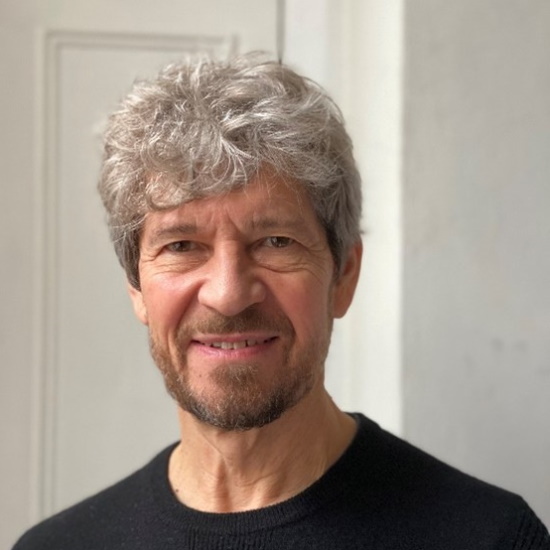
Professor Robin Lovell-Badge FRS
The Francis Crick Institute

Professor Robin Lovell-Badge FRS
The Francis Crick Institute
Robin Lovell-Badge obtained his PhD at University College London in 1978 and was a postdoc in Cambridge, both with Martin Evans. After an EMBO fellowship in Paris he established his independent laboratory in 1982 at the MRC Mammalian Development Unit, UCL, directed by Anne McLaren. In 1988 he moved to the MRC National Institute for Medical Research, which was incorporated into the Francis Crick Institute in 2015. In 1990, his lab discovered Sry, the Y-linked sex determining gene and the Sox gene family. Major themes of his past and current work include sex determination, development of the gonads, nervous system and pituitary, and the biology of stem cells within these systems. He is also very active in both public engagement and policy work. He has a strong interest in the prospects for applications of human genome editing and was on the organising committee for the three international Summits held on this, including as chair for the 2023 meeting.
| 09:30-09:45 |
Welcome and opening remarks
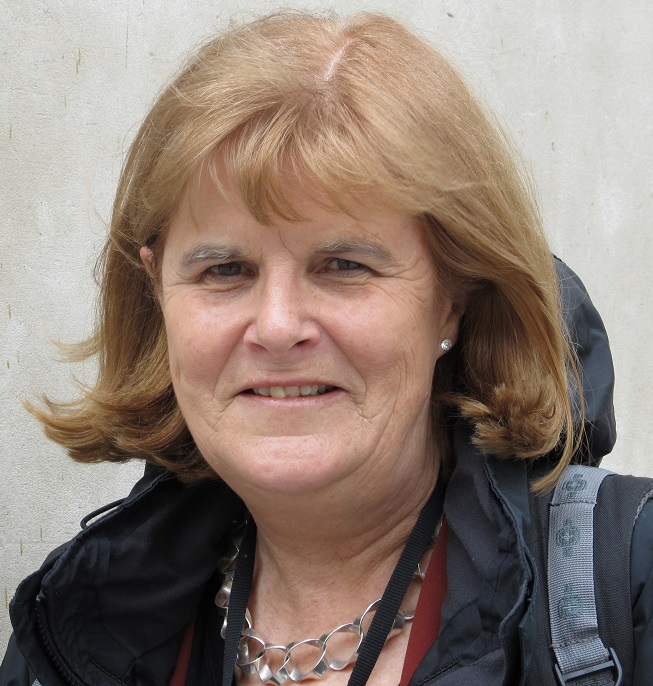
Professor Dame Linda PartridgeInstitute of Healthy Ageing, University College London 
Professor Dame Linda PartridgeInstitute of Healthy Ageing, University College London Linda Partridge works on the biology of ageing. Her research is directed to understanding the mechanisms by which healthy lifespan can be extended in laboratory model organisms and humans. Her work has focused in particular on the role of nutrient-sensing pathways, such as the insulin/insulin-like growth factor signalling pathway, and on the role of diet. She is the recipient of numerous awards, including the Royal Society's Croonian Prize Lecture, and was honoured with a DBE for Services to Science in 2009. She is a Fellow of the Royal Society, the Academy of Medical Sciences and a foreign member of the American Academy of Arts and Sciences. She is Director of the Institute of Healthy Ageing at UCL and the founding director of the Max Planck Institute for Biology of Ageing in Cologne, Germany. Victor DzauUnited States National Academies of Sciences and Medicine Victor DzauUnited States National Academies of Sciences and Medicine |
|---|---|
| 09:45-10:00 |
History of the Summits
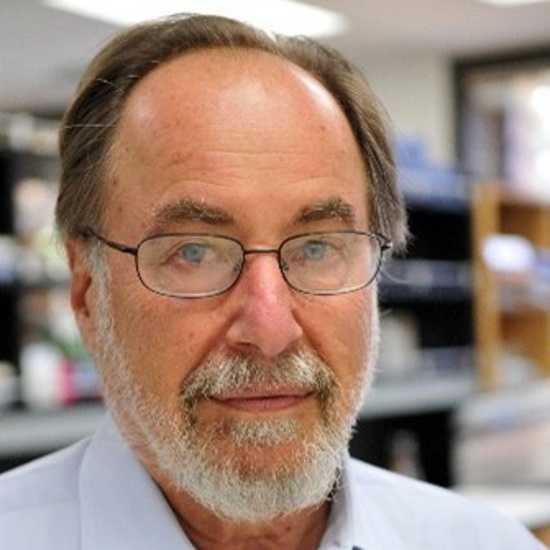
Dr David Baltimore ForMemRSThe California Institute of Technology 
Dr David Baltimore ForMemRSThe California Institute of Technology David Baltimore is President Emeritus and Judge Shirley Hufstedler Professor of Biology at Caltech. Awarded the Nobel Prize in 1975 for research in virology, Baltimore has profoundly influenced national science policy on such issues as recombinant DNA research and the AIDS epidemic. Dr Baltimore graduated from Swarthmore College with a degree in chemistry. He took graduate courses at Massachusetts Institute of Technology and received his PhD from Rockefeller University. He was a postdoctoral fellow at MIT and Albert Einstein College of Medicine. He was a Research Associate at The Salk Institute in 1965 and joined the faculty at MIT in 1968. He has served as Director of the Whitehead Institute for Biomedical Research, President of Rockefeller University, and President of Caltech. He was awarded the 1999 National Medal of Science, 2000 Warren Alpert Foundation Prize and 2021 Lasker-Koshland Special Achievement Award in Medical Science. He is a member of the National Academy of Sciences, fellow of the American Academy of Arts and Sciences, and a foreign member of the Royal Society and the French Academy of Sciences. He has been President and Chair of the American Association of the Advancement of Science. |
Chair
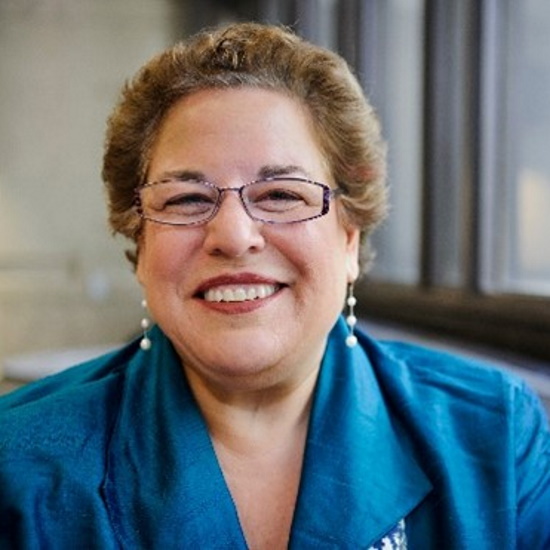
Professor Alta Charo
University of Wisconsin–Madison, US

Professor Alta Charo
University of Wisconsin–Madison, US
R Alta Charo, JD, is the Warren P Knowles professor emerita of law and bioethics at the University of Wisconsin–Madison (UW) and since 2020 works as an independent consultant to industry and government on biotechnology ethics, regulation and policy. She also serves as co-chair of the safety, security, sustainability and social responsibility unit of BioMADE, a US-based consortium of biotechnology companies and academic centers. Prior to her arrival at UW in 1989, Ms Charo served as associate director of the Legislative Drafting Research Fund of Columbia University, Fulbright lecturer in American law at the Sorbonne in Paris, legal analyst at the congressional Office of Technology Assessment, and American Association for the Advancement of Science (AAAS) diplomacy fellow at the US Agency for International Development. Also, in government, she was a member of President Clinton’s National Bioethics Advisory Commission and a senior policy advisor in the FDA’s Office of the Commissioner under the Obama administration. At the US National Academies of Sciences, Engineering, and Medicine, Ms Charo has served on numerous committees, the committee that issued the 2004 report ‘Biotechnology Research in the Age of Terrorism’; the committee on emerging science, technology and innovation; and the committees on emerging infectious diseases and COVID-19 vaccine and monoclonal antibody allocation frameworks. She co-chaired the National Academies committee that wrote guidelines for embryonic stem cell research and the committee that developed recommendations for US policy and global principles for human genome editing research and clinical trials. Ms Charo recently completed service on the World Health Organization’s committee on global governance of genome editing. She is an elected member of the US National Academy of Medicine and an elected Fellow of the AAAS and of the American Academy of Arts and Sciences.
| 10:00-10:25 |
Regulation in China following the 2018 misuse of heritable human genome editing
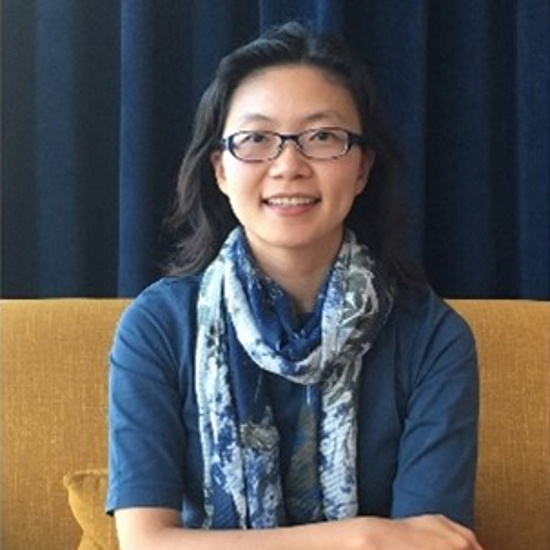
Joy ZhangUniversity of Kent 
Joy ZhangUniversity of Kent Joy Y. Zhang is Reader in Sociology and the Founding Director of the Centre for Global Science and Epistemic Justice at the University of Kent. Originally trained as a medical doctor, her research investigates the transnational governance of scientific uncertainty and the democratisation of knowledge production. Conceptually, her work contributes to sociological theories of risk, cosmopolitanism, decolonisation and subaltern politics. She has undertaken empirical studies on stem cells, synthetic biology, genome editing, food movements and environmental politics. She is the author of four academic monographs: The Cosmopolitanization of Science: Stem Cell Governance in China(2012), Green Politics in China: Environmental Governance and State-Society Relations(2013), The Elephant and the Dragon in Contemporary Life Sciences: A Call for Decolonising Global Governance (2022) and Democratic Participation and the Cosmopolitics of Science: Why Scientific Citizenship Matters in the 21st Century (forthcoming). 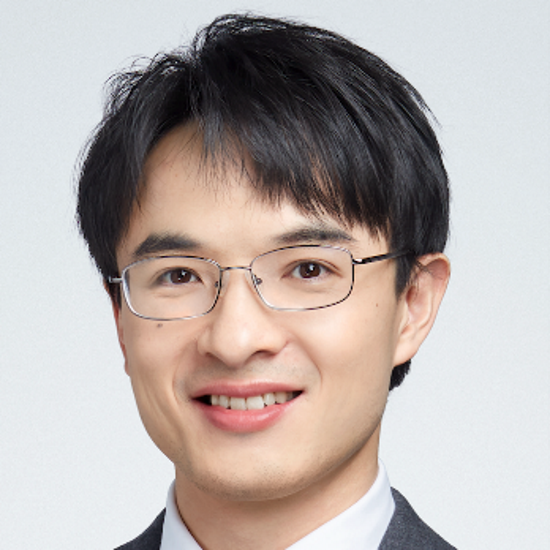
Yaojin PengChinese Academy of Sciences 
Yaojin PengChinese Academy of Sciences Dr Yaojin Peng, Zhiyi Professor, Institute of Zoology (Chinese Academy of Sciences, CAS), Beijing Institute of Stem Cell and Regenerative Medicine (BISCRM); Director of the Centre for Ethics of Science and Technology (CEST); Director of the Life Sciences and Medical Ethics Committee of the CAS. He holds a Bachelor’s degree in life science and a Master’s degree in Law. He finished his PhD at the Faculty of Law, Maastricht University, the Netherlands. Dr Peng’s research focuses on biotechnology law and bioethics, intellectual property rights (patents) and standards, science and technology policy and management. He currently is a member of the expert committee of China Stem Cell and Regenerative Medicine Collaborative Innovation Platform; Deputy Secretary General of the Academic committee of the Center for Science & Technology Development and Governance, Tsinghua University; a member of the Standard Working Group of Chinese Society for Stem Cell Research (CSSCR); He used to be a fellow member of the Ius Commune Research School, researcher of the Institute for Globalization and International Regulation (IGIR), Maastricht University, team advisor of the 17th Congress of the European Intellectual Property Institutes Network (EIPIN). He visited the School of Law, Singapore Management University (SMU) for six months. He has chaired or participated in many projects. In 2021, he was selected into the “Youth Innovation Promotion Association of the CAS”, and had the honour to win the Awards of “Advanced Individual for Stem Cell Social Welfare” of the CSSCR. |
|---|
Chair

Professor Alta Charo
University of Wisconsin–Madison, US

Professor Alta Charo
University of Wisconsin–Madison, US
R Alta Charo, JD, is the Warren P Knowles professor emerita of law and bioethics at the University of Wisconsin–Madison (UW) and since 2020 works as an independent consultant to industry and government on biotechnology ethics, regulation and policy. She also serves as co-chair of the safety, security, sustainability and social responsibility unit of BioMADE, a US-based consortium of biotechnology companies and academic centers. Prior to her arrival at UW in 1989, Ms Charo served as associate director of the Legislative Drafting Research Fund of Columbia University, Fulbright lecturer in American law at the Sorbonne in Paris, legal analyst at the congressional Office of Technology Assessment, and American Association for the Advancement of Science (AAAS) diplomacy fellow at the US Agency for International Development. Also, in government, she was a member of President Clinton’s National Bioethics Advisory Commission and a senior policy advisor in the FDA’s Office of the Commissioner under the Obama administration. At the US National Academies of Sciences, Engineering, and Medicine, Ms Charo has served on numerous committees, the committee that issued the 2004 report ‘Biotechnology Research in the Age of Terrorism’; the committee on emerging science, technology and innovation; and the committees on emerging infectious diseases and COVID-19 vaccine and monoclonal antibody allocation frameworks. She co-chaired the National Academies committee that wrote guidelines for embryonic stem cell research and the committee that developed recommendations for US policy and global principles for human genome editing research and clinical trials. Ms Charo recently completed service on the World Health Organization’s committee on global governance of genome editing. She is an elected member of the US National Academy of Medicine and an elected Fellow of the AAAS and of the American Academy of Arts and Sciences.
| 10:25-10:45 |
Genome editing for precision medicine: status and opportunities
abstract content 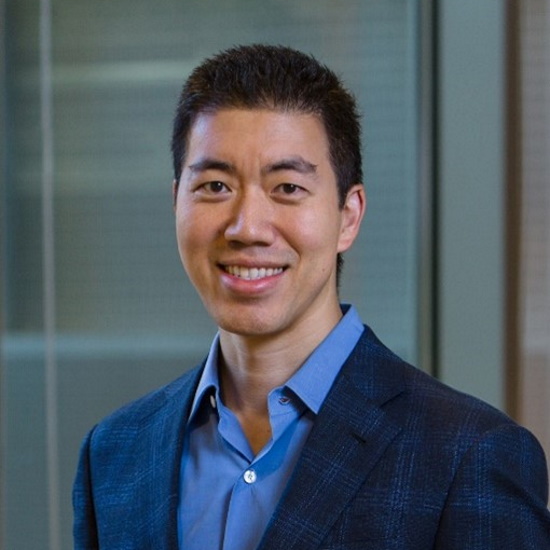
David LiuBroad Institute, Harvard University & Howard Hughes Medical Institute 
David LiuBroad Institute, Harvard University & Howard Hughes Medical Institute David R. Liu is the Richard Merkin Professor and director of the Merkin Institute of Transformative Technologies in Healthcare, vice-chair of the faculty at the Broad Institute of MIT and Harvard, the Thomas Dudley Cabot Professor of the Natural Sciences at Harvard University, and a Howard Hughes Medical Institute (HHMI) investigator. Liu’s research integrates chemistry and evolution to illuminate biology and enable next-generation therapeutics. His major research interests include the engineering, evolution, and in vivo delivery of genome editing proteins such as base editors and prime editors to study and treat genetic diseases; the evolution of proteins with novel therapeutic potential using phage-assisted continuous evolution (PACE); and the discovery of bioactive synthetic small molecules and synthetic polymers using DNA-templated organic synthesis and DNA-encoded libraries. Base editing—the first general method to perform precision gene editing without double-stranded breaks, and a Science 2017 Breakthrough of the Year finalist—as well as prime editing, PACE, and DNA-templated synthesis are four examples of technologies pioneered in his laboratory. These technologies are used by thousands of labs around the world and have enabled the study and potential treatment of many genetic diseases. Three base editing clinical trials are already underway to treat leukemia, hypercholesterolemia, and sickle-cell disease. Liu graduated first in his class at Harvard College in 1994. During his doctoral research at UC Berkeley, Liu initiated the first general effort to expand the genetic code in living cells. He earned his PhD in 1999 and became assistant professor of chemistry and chemical biology at Harvard University in the same year. He was promoted to associate professor in 2003 and to full professor in 2005. Liu became a Howard Hughes Medical Institute investigator in 2005 and joined the JASONs, academic science advisors to the U.S. government, in 2009. In 2016 he became a Core Institute Member and Vice-Chair of the Faculty at the Broad Institute of MIT and Harvard, and Director of the Chemical Biology and Therapeutics Science Program. Liu has published more than 230 papers and is the inventor on more than 90 issued U.S. patents. Liu has been elected to the U.S. National Academy of Sciences, the U.S. National Academy of Medicine, and the American Association for the Advancement of Science. He is the 2022 King Faisal Prize Laureate in Medicine. He has earned several University-wide distinctions for teaching at Harvard, including the Joseph R. Levenson Memorial Teaching Prize, the Roslyn Abramson Award, and a Harvard College Professorship. His research accomplishments have earned distinctions including the Ronald Breslow Award for Biomimetic Chemistry, the American Chemical Society David Perlman Award, ACS Chemical Biology Award, the American Chemical Society Pure Chemistry Award, the Arthur Cope Young Scholar Award, the NIH Marshall Nirenberg Lecturer, and awards from the Sloan Foundation, Beckman Foundation, NSF CAREER Program, and Searle Scholars Program. In 2016, 2019, and 2020 he was named one of the Top 20 Translational Researchers in the world by Nature Biotechnology, and was named one of Nature’s 10 researchers in world and to the Foreign Policy Leading Global Thinkers in 2017. Liu is the founder or co-founder of several public and private biotechnology and therapeutics companies, including Beam Therapeutics, Prime Medicine, Editas Medicine, Pairwise Plants, Exo Therapeutics, Chroma Medicine, Resonance Medicine, and Nvelop Therapeutics. |
|---|
Chair

Professor Alta Charo
University of Wisconsin–Madison, US

Professor Alta Charo
University of Wisconsin–Madison, US
R Alta Charo, JD, is the Warren P Knowles professor emerita of law and bioethics at the University of Wisconsin–Madison (UW) and since 2020 works as an independent consultant to industry and government on biotechnology ethics, regulation and policy. She also serves as co-chair of the safety, security, sustainability and social responsibility unit of BioMADE, a US-based consortium of biotechnology companies and academic centers. Prior to her arrival at UW in 1989, Ms Charo served as associate director of the Legislative Drafting Research Fund of Columbia University, Fulbright lecturer in American law at the Sorbonne in Paris, legal analyst at the congressional Office of Technology Assessment, and American Association for the Advancement of Science (AAAS) diplomacy fellow at the US Agency for International Development. Also, in government, she was a member of President Clinton’s National Bioethics Advisory Commission and a senior policy advisor in the FDA’s Office of the Commissioner under the Obama administration. At the US National Academies of Sciences, Engineering, and Medicine, Ms Charo has served on numerous committees, the committee that issued the 2004 report ‘Biotechnology Research in the Age of Terrorism’; the committee on emerging science, technology and innovation; and the committees on emerging infectious diseases and COVID-19 vaccine and monoclonal antibody allocation frameworks. She co-chaired the National Academies committee that wrote guidelines for embryonic stem cell research and the committee that developed recommendations for US policy and global principles for human genome editing research and clinical trials. Ms Charo recently completed service on the World Health Organization’s committee on global governance of genome editing. She is an elected member of the US National Academy of Medicine and an elected Fellow of the AAAS and of the American Academy of Arts and Sciences.
| 11:15-11:45 |
International equity for access to gene therapies
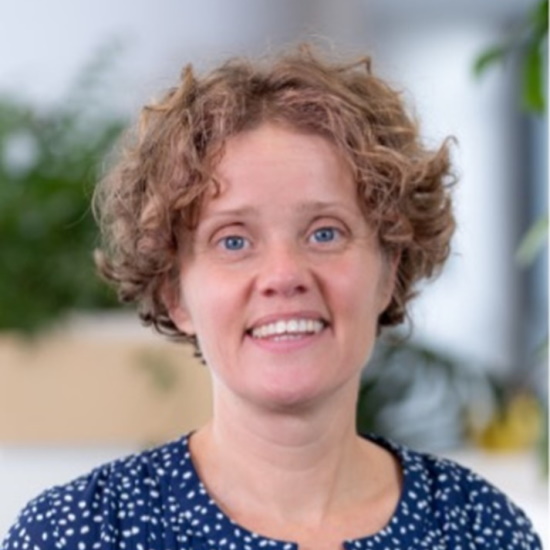
Jantina De VriesUniversity of Cape Town, South Africa 
Jantina De VriesUniversity of Cape Town, South Africa Jantina de Vries is the director of The Ethics Lab at the Neuroscience Institute and an Associate Professor in Bioethics in the Department of Medicine of the University of Cape Town. Her expertise is in the ethics of African genomics research, and she is currently leading a large research and teaching program that brings together knowledge from the African humanities with the ethics of new and emerging health technologies. She was a member of the WHO Genome Editing Expert Advisory Committee as of the H3Africa Steering Committee. She is a member of: the Research Ethics Board of Médecins Sans Frontières, the Steering Committee of the Global Forum for Bioethics in Research and the Advisory Board for the Center for ELSI Resources and Analysis (CERA) at Stanford University. 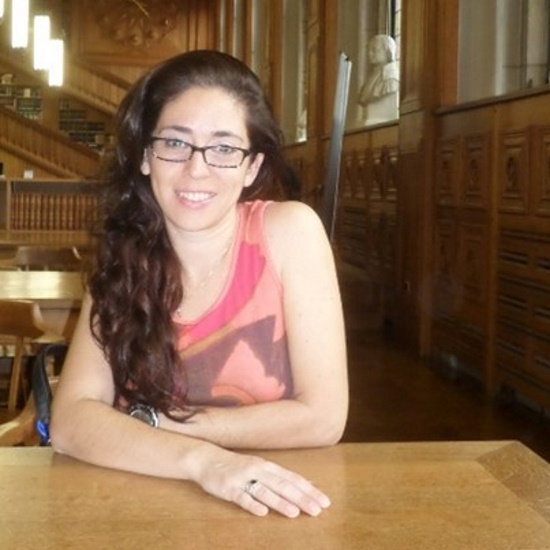
Natacha Salomé LimaNational Scientific and Technical Research Council (CONICET) & Universidad de Buenos Aires 
Natacha Salomé LimaNational Scientific and Technical Research Council (CONICET) & Universidad de Buenos Aires Natacha Salomé Lima is a psychologist who lives in the province of Buenos Aires, Argentina. During 2015-2016 she finished the Master of Bioethics from the Erasmus Mundus Program (KU Leuven, Università degli Studi di Padova, and Radboud Universiteit Nijmegen). She holds a Ph.D. in psychology from the University of Buenos Aires (UBA) with a thesis that explores bioethical dilemmas through a narrative paradigm. Since 2019 Natacha coordinates the postgraduate studies of Psychology in Human Assisted Reproduction at the Argentine Society of Reproductive Medicine (SAMeR). At the undergraduate level, Natacha teaches Psychology, Ethics, and Human Rights, and coordinates the research practice "Bioethics in Healthcare Institutions" at the Faculty of Psychology (UBA). Her research interest includes narrative bioethics, assisted reproductive technologies, and ethical challenges posed by biotechnological developments. She is conducting her research at the National Scientific and Technical Research Council – CONICET Argentina. 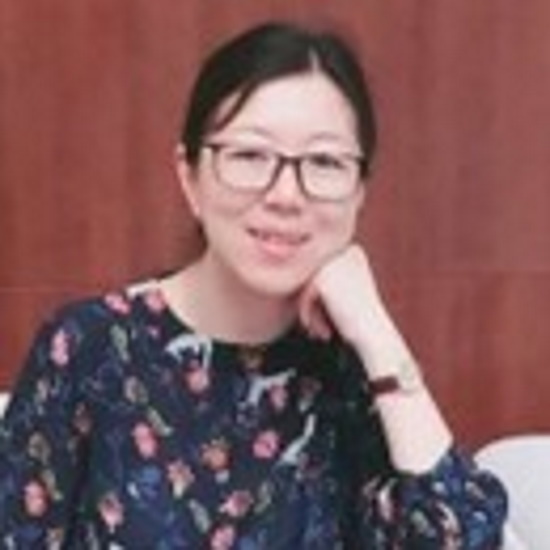
Ping YanDalian University of Technology 
Ping YanDalian University of Technology Dr. Ping YAN,female, assistant professor at Dalian University of Technology, visiting scholar at Delft University of Technology (2012; 2014). She has won European Commission’s Erasmus Mundus scholarship (2014.6) and Overseas Dispatch Program for Women Scholars, funded by Ministry of Education, Sports, Science and Technology in Japan (2019.3). Her research focuses on the ethics of science and technology, responsible research and innovation (RRI), especially focus on the ethics of genome editing technology in recent years. She has been chairing several academic projects funded by Ministry of Education, Ministry of Science and Technology, etc. in China, and participated the “SIENNA” project sponsored by EU “Horizon 2020” (2017-2021), and working as the coordinator for China team. Recently she has won a National Social Science Fund with the project title of “Ethical Governance of Human Genome Editing in China from the Perspective of Global Governance” (2022-2025). She has organized a research team working on the ethics of Human Genome Editing in China with four outstanding young scholars, and participating the Third International Summit as a team, including Dr. Lu GAO, female, associate professor of STS in the Institute for the History of Natural Sciences, Chinese Academy of Sciences; Dr. Yang YANG, female, executive editor-in-chief of Journal of Medicine and Philosophy in China and associate professor of medical ethics in Dalian Medical University; Dr. Wenlong LU, male, vice dean and associate professor of philosophy of technology at Dongbei University of Finance and Economics; Dr. Wei ZHANG, male, full professor of philosophy of technology at Dalian University of Technology. |
|---|---|
| 11:45-12:15 |
Hopes and fears for human genome editing
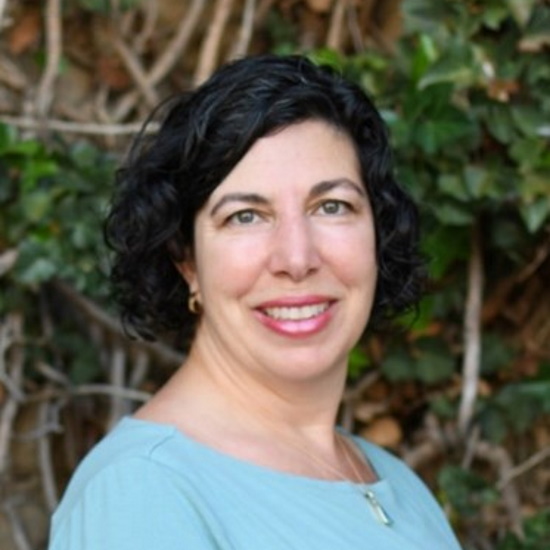
Kelly OrmondETH-Zurich & Stanford University 
Kelly OrmondETH-Zurich & Stanford University Kelly Ormond is a genetic counselor (US ABGC certified) and ELSI researcher. She received her MS in Genetic Counseling from Northwestern University (1994) and a post-graduate certificate in Clinical Medical Ethics from the MacLean Center at the University of Chicago (2001). She joined the Health Ethics and Policy Lab as a Senior Scientist in February 2021, and is an Adjunct Professor in the Department of Genetics at Stanford School of Medicine, Stanford University, California, USA . Prior to joining ETH, Kelly practiced as a clinical genetic counselor in the United States for >25 years, gaining experience in reproductive genetics, teratology, pediatric/medical genetics, adult neurogenetics, cancer genetics and primary care applications of genetic testing. She has spent over 20 years educating MS level genetic counselors as the training program director at Northwestern University (Chicago, IL 1999-2007) and Stanford University (California 2007-2020), including teaching courses in medical genetics, counseling skills, ethics and research skills. She has served on appointed committees and boards for many US national genetics organizations (ASHG, NSGC, ACMG), and currently serves on the ESHG Program Committee. She is also the current President of the Transnational Alliance for Genetic Counseling (TAGC). While at Stanford, Kelly worked as a faculty member within the Stanford Center for Biomedical Ethics (SCBE), primarily participating in bioethics research about the intersection between genetics and ethics, particularly around the translation of new genetic technologies (such as genome sequencing, non-invasive prenatal diagnosis and gene editing) into clinical practice. She also served on the hospital ethics committee at Stanford from 2008-2020. Kelly's recent research focuses on patient decision making, the role of uncertainty in decision making, consent and disclosure of genetic test results, personalized medicine, and the interface between genetics and disability. 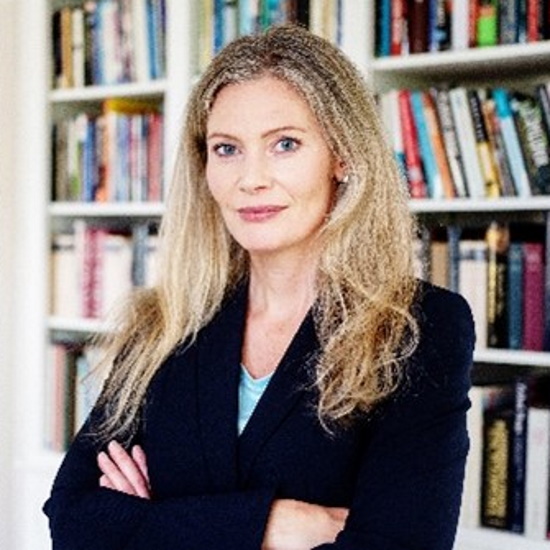
Filippa LentzosKing's College London 
Filippa LentzosKing's College London Dr Filippa Lentzos is Reader (Associate Professor) in Science & International Security at King’s College London, where she is jointly appointed in the Department of War Studies and the Department of Global Health & Social Medicine. A biologist and social scientist by training, Dr Lentzos’s research critically examines biological threats, health security, biorisk management and biological arms control, and she has written widely on these issues. Dr Lentzos serves as the Director of the King’s MA in Science & International Security. She is also an Associate Senior Researcher at the Stockholm International Peace Research Institute (SIPRI), a Non-Resident Scholar at the James Martin Center for Nonproliferation Studies (CNS), and she serves as the NGO Coordinator for the Biological Weapons Convention. |
| 12:15-12:50 |
Panel discussion

David LiuBroad Institute, Harvard University & Howard Hughes Medical Institute 
David LiuBroad Institute, Harvard University & Howard Hughes Medical Institute David R. Liu is the Richard Merkin Professor and director of the Merkin Institute of Transformative Technologies in Healthcare, vice-chair of the faculty at the Broad Institute of MIT and Harvard, the Thomas Dudley Cabot Professor of the Natural Sciences at Harvard University, and a Howard Hughes Medical Institute (HHMI) investigator. Liu’s research integrates chemistry and evolution to illuminate biology and enable next-generation therapeutics. His major research interests include the engineering, evolution, and in vivo delivery of genome editing proteins such as base editors and prime editors to study and treat genetic diseases; the evolution of proteins with novel therapeutic potential using phage-assisted continuous evolution (PACE); and the discovery of bioactive synthetic small molecules and synthetic polymers using DNA-templated organic synthesis and DNA-encoded libraries. Base editing—the first general method to perform precision gene editing without double-stranded breaks, and a Science 2017 Breakthrough of the Year finalist—as well as prime editing, PACE, and DNA-templated synthesis are four examples of technologies pioneered in his laboratory. These technologies are used by thousands of labs around the world and have enabled the study and potential treatment of many genetic diseases. Three base editing clinical trials are already underway to treat leukemia, hypercholesterolemia, and sickle-cell disease. Liu graduated first in his class at Harvard College in 1994. During his doctoral research at UC Berkeley, Liu initiated the first general effort to expand the genetic code in living cells. He earned his PhD in 1999 and became assistant professor of chemistry and chemical biology at Harvard University in the same year. He was promoted to associate professor in 2003 and to full professor in 2005. Liu became a Howard Hughes Medical Institute investigator in 2005 and joined the JASONs, academic science advisors to the U.S. government, in 2009. In 2016 he became a Core Institute Member and Vice-Chair of the Faculty at the Broad Institute of MIT and Harvard, and Director of the Chemical Biology and Therapeutics Science Program. Liu has published more than 230 papers and is the inventor on more than 90 issued U.S. patents. Liu has been elected to the U.S. National Academy of Sciences, the U.S. National Academy of Medicine, and the American Association for the Advancement of Science. He is the 2022 King Faisal Prize Laureate in Medicine. He has earned several University-wide distinctions for teaching at Harvard, including the Joseph R. Levenson Memorial Teaching Prize, the Roslyn Abramson Award, and a Harvard College Professorship. His research accomplishments have earned distinctions including the Ronald Breslow Award for Biomimetic Chemistry, the American Chemical Society David Perlman Award, ACS Chemical Biology Award, the American Chemical Society Pure Chemistry Award, the Arthur Cope Young Scholar Award, the NIH Marshall Nirenberg Lecturer, and awards from the Sloan Foundation, Beckman Foundation, NSF CAREER Program, and Searle Scholars Program. In 2016, 2019, and 2020 he was named one of the Top 20 Translational Researchers in the world by Nature Biotechnology, and was named one of Nature’s 10 researchers in world and to the Foreign Policy Leading Global Thinkers in 2017. Liu is the founder or co-founder of several public and private biotechnology and therapeutics companies, including Beam Therapeutics, Prime Medicine, Editas Medicine, Pairwise Plants, Exo Therapeutics, Chroma Medicine, Resonance Medicine, and Nvelop Therapeutics. 
Jantina De VriesUniversity of Cape Town, South Africa 
Jantina De VriesUniversity of Cape Town, South Africa Jantina de Vries is the director of The Ethics Lab at the Neuroscience Institute and an Associate Professor in Bioethics in the Department of Medicine of the University of Cape Town. Her expertise is in the ethics of African genomics research, and she is currently leading a large research and teaching program that brings together knowledge from the African humanities with the ethics of new and emerging health technologies. She was a member of the WHO Genome Editing Expert Advisory Committee as of the H3Africa Steering Committee. She is a member of: the Research Ethics Board of Médecins Sans Frontières, the Steering Committee of the Global Forum for Bioethics in Research and the Advisory Board for the Center for ELSI Resources and Analysis (CERA) at Stanford University. 
Natacha Salomé LimaNational Scientific and Technical Research Council (CONICET) & Universidad de Buenos Aires 
Natacha Salomé LimaNational Scientific and Technical Research Council (CONICET) & Universidad de Buenos Aires Natacha Salomé Lima is a psychologist who lives in the province of Buenos Aires, Argentina. During 2015-2016 she finished the Master of Bioethics from the Erasmus Mundus Program (KU Leuven, Università degli Studi di Padova, and Radboud Universiteit Nijmegen). She holds a Ph.D. in psychology from the University of Buenos Aires (UBA) with a thesis that explores bioethical dilemmas through a narrative paradigm. Since 2019 Natacha coordinates the postgraduate studies of Psychology in Human Assisted Reproduction at the Argentine Society of Reproductive Medicine (SAMeR). At the undergraduate level, Natacha teaches Psychology, Ethics, and Human Rights, and coordinates the research practice "Bioethics in Healthcare Institutions" at the Faculty of Psychology (UBA). Her research interest includes narrative bioethics, assisted reproductive technologies, and ethical challenges posed by biotechnological developments. She is conducting her research at the National Scientific and Technical Research Council – CONICET Argentina. 
Ping YanDalian University of Technology 
Ping YanDalian University of Technology Dr. Ping YAN,female, assistant professor at Dalian University of Technology, visiting scholar at Delft University of Technology (2012; 2014). She has won European Commission’s Erasmus Mundus scholarship (2014.6) and Overseas Dispatch Program for Women Scholars, funded by Ministry of Education, Sports, Science and Technology in Japan (2019.3). Her research focuses on the ethics of science and technology, responsible research and innovation (RRI), especially focus on the ethics of genome editing technology in recent years. She has been chairing several academic projects funded by Ministry of Education, Ministry of Science and Technology, etc. in China, and participated the “SIENNA” project sponsored by EU “Horizon 2020” (2017-2021), and working as the coordinator for China team. Recently she has won a National Social Science Fund with the project title of “Ethical Governance of Human Genome Editing in China from the Perspective of Global Governance” (2022-2025). She has organized a research team working on the ethics of Human Genome Editing in China with four outstanding young scholars, and participating the Third International Summit as a team, including Dr. Lu GAO, female, associate professor of STS in the Institute for the History of Natural Sciences, Chinese Academy of Sciences; Dr. Yang YANG, female, executive editor-in-chief of Journal of Medicine and Philosophy in China and associate professor of medical ethics in Dalian Medical University; Dr. Wenlong LU, male, vice dean and associate professor of philosophy of technology at Dongbei University of Finance and Economics; Dr. Wei ZHANG, male, full professor of philosophy of technology at Dalian University of Technology. 
Kelly OrmondETH-Zurich & Stanford University 
Kelly OrmondETH-Zurich & Stanford University Kelly Ormond is a genetic counselor (US ABGC certified) and ELSI researcher. She received her MS in Genetic Counseling from Northwestern University (1994) and a post-graduate certificate in Clinical Medical Ethics from the MacLean Center at the University of Chicago (2001). She joined the Health Ethics and Policy Lab as a Senior Scientist in February 2021, and is an Adjunct Professor in the Department of Genetics at Stanford School of Medicine, Stanford University, California, USA . Prior to joining ETH, Kelly practiced as a clinical genetic counselor in the United States for >25 years, gaining experience in reproductive genetics, teratology, pediatric/medical genetics, adult neurogenetics, cancer genetics and primary care applications of genetic testing. She has spent over 20 years educating MS level genetic counselors as the training program director at Northwestern University (Chicago, IL 1999-2007) and Stanford University (California 2007-2020), including teaching courses in medical genetics, counseling skills, ethics and research skills. She has served on appointed committees and boards for many US national genetics organizations (ASHG, NSGC, ACMG), and currently serves on the ESHG Program Committee. She is also the current President of the Transnational Alliance for Genetic Counseling (TAGC). While at Stanford, Kelly worked as a faculty member within the Stanford Center for Biomedical Ethics (SCBE), primarily participating in bioethics research about the intersection between genetics and ethics, particularly around the translation of new genetic technologies (such as genome sequencing, non-invasive prenatal diagnosis and gene editing) into clinical practice. She also served on the hospital ethics committee at Stanford from 2008-2020. Kelly's recent research focuses on patient decision making, the role of uncertainty in decision making, consent and disclosure of genetic test results, personalized medicine, and the interface between genetics and disability. 
Filippa LentzosKing's College London 
Filippa LentzosKing's College London Dr Filippa Lentzos is Reader (Associate Professor) in Science & International Security at King’s College London, where she is jointly appointed in the Department of War Studies and the Department of Global Health & Social Medicine. A biologist and social scientist by training, Dr Lentzos’s research critically examines biological threats, health security, biorisk management and biological arms control, and she has written widely on these issues. Dr Lentzos serves as the Director of the King’s MA in Science & International Security. She is also an Associate Senior Researcher at the Stockholm International Peace Research Institute (SIPRI), a Non-Resident Scholar at the James Martin Center for Nonproliferation Studies (CNS), and she serves as the NGO Coordinator for the Biological Weapons Convention. |
Chair
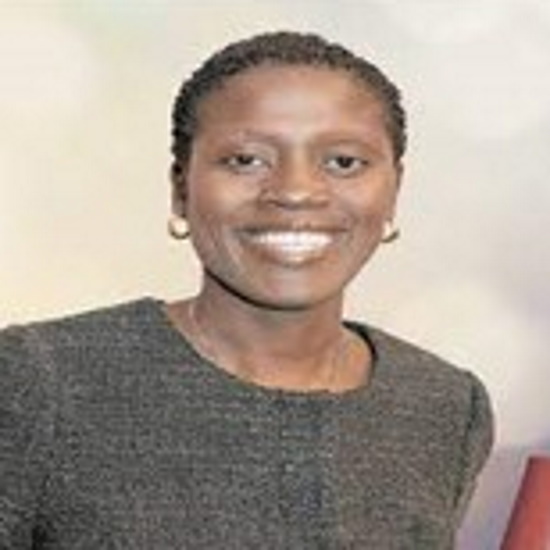
Julie Makani
Muhimbili University of Health and Allied Sciences, Tanzania

Julie Makani
Muhimbili University of Health and Allied Sciences, Tanzania
Professor Julie Makani is a Physician Scientist in the Department of Haematology and Blood Transfusion at Muhimbili University of Health and Allied Sciences (MUHAS), where Tanzania established one of the world’s largest single-centre study cohorts for sickle cell disease. She serves as Principal Investigator of the Sickle Cell programme in MUHAS and Sickle Pan African Research Consortium (SPARCO) Clinical Coordinating Centre (CCC) within SickleInAfrica network. Site Principal Investigator for MUHAS for H3ABioNet and Co- Principal Investigator SickleGenAfrica. These networks are strengthening health, education, advocacy and research in sickle cell disease and with related diseases and sectors. The partnerships are at different levels: institutional, national, regional, Africa and Global. Through this work, there is progress in establishment of platforms for health (Centres of Excellence; Blood Transfusion Programmes) and genomic research (H3Africa, SickleGenAfrica). These platforms are available for gene therapy research and are potential opportunities for strengthening specialized health services and introducing curative therapies within health systems in countries in Africa in an equitable manner. The aim is to use sickle cell disease as a model to establish scientific and healthcare solutions in Africa that are locally relevant and globally significant.
Professor Makani (MD, PhD, FRCP, FTAAS) trained in Medicine (Tanzania), specialized in Internal Medicine (UK), and completed her PhD in clinical epidemiology of sickle cell disease (UK). She has received numerous national and international awards for her academic and scientific achievements. She was a Wellcome Trust Research Fellow (2003 – 2009; 2012 - 2017), Tutu Leadership Fellow (2009) and Honorary Visiting Research Fellow, University of Oxford (2003 - 2016). She received the 2011 Royal Society Africa Award on the application of genomic research to improve health and find a cure for sickle cell disease. She is a Fellow of the Royal College of Physicians of UK and Fellow of the Tanzania Academy of Sciences.
| 13:50-14:15 |
Overview and clinical context of Sickle Cell disease
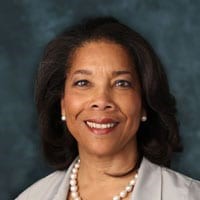
Alexis ThompsonChildren’s Hospital of Philadelphia & University of Pennsylvania 
Alexis ThompsonChildren’s Hospital of Philadelphia & University of Pennsylvania Dr Alexis Thompson is Chief, Division of Haematology at the Children’s Hospital of Philadelphia. She is also Professor of Paediatrics at the University of Pennsylvania Perelman School of Medicine and holds the Elias Schwartz MD Endowed Chair in Haematology. Previously, Dr Thompson was the Haematology Section Head at Lurie Children’s Hospital of Chicago in Chicago, Illinois and held the A Watson and Sarah Armour Endowed Chair for Blood Diseases and Cancer. For over 12 years, Dr Thompson was Associate Director for Equity and Minority Health at the Northwestern’s Robert H Lurie Comprehensive Cancer Center. Her research interests include haemoglobinopathies (thalassaemia and sickle cell disease), and stem cell transplantation in paediatric patients, including gene therapy. Her most significant scientific contributions are clinical and translation studies to better understand and treat haemoglobinopathies, leading to landmark findings in the field. She has been a leader in multicentre collaborations, such as the NHLBI-funded Thalassaemia Clinical Research Network and the Sickle Cell Disease Implementation Consortium. She has served on regional and national on advisory committees for governmental agencies as well as non-profit organizations focused on improving healthcare access, increasing workforce diversity and reducing health disparities. As a leader of the American Society of Haematology, Dr Thompson helped to develop a comprehensive report on the current state of clinical care for SCD in an effort to identify unmet medical needs, launch a national sickle cell data collection platform and create a sickle cell learning community to improve outcomes. She is also leading efforts to implement newborn screening and early intervention efforts in sub-Saharan Africa, where the burden of SCD is profound. 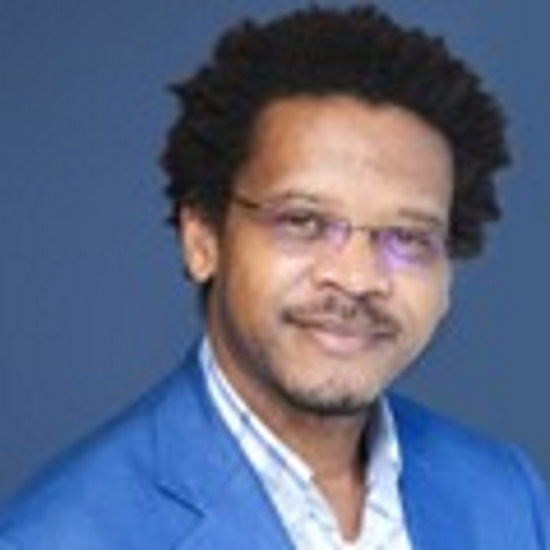
Ambroise WonkamSickleInAfrica & African Society of Human Genetics 
Ambroise WonkamSickleInAfrica & African Society of Human Genetics Ambroise Wonkam is Professor of Genetic medicine and Director of the Mckusick-Nathan Institute and Department of Genetic Medicine at the Johns Hopkins University School of Medicine, Baltimore, USA, and Professor of Genetic Medicine and Director of GeneMAP (Genetic Medicine of African Populations) Research Centter, University of Cape Town, South Africa. Born in Yaoundé, Cameroon, Ambroise Wonkam, MD PhD grew up witnessing the pain, disability, and death caused by sickle cell disease – among family friends, classmates, and colleagues. Very early in his medical education that experience led him to cell biology and, later, to genetics. Focusing on sickle cell disease seemed, then, almost like a calling. With more than 130 peer-reviewed publications on sickle cell disease, supported by a grant from the NIH and Wellcome Trust over the past ten years, Wonkam has won multiple prizes, including the prestigious 2020 Alan Pifer Award. In 2014, he won the competitive Clinical Genetics Society International Award from the British Society of Genetic Medicine. He is the president of the African Society of Human Genetics. |
|---|---|
| 14:15-14:25 |
The lived experience of genetic editing treatment for Sickle Cell disease
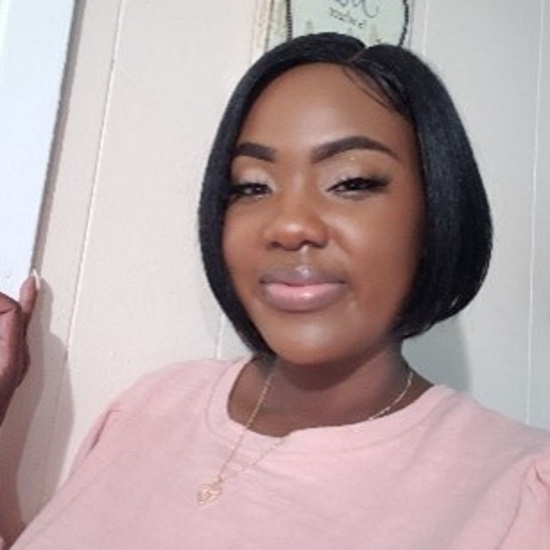
Victoria Gray

Victoria Gray
Victoria Gray is a 37-year-old wife and mother of 4. She has battled with sickle cell disease type ss for 34 years. Dealing with unbearable pain, multiple blood transfusions, countless hospital visits and energy draining pain medications almost made life unbearable. In 2018 she made the life changing decision to try gene therapy. It was one of the best decisions she has ever made. Victoria hopes that her story will reignite the torch of hope inside the lives of many others whose light has begun to dim like hers once did.
|
| 14:25-14:50 |
Patient perspectives panel discussion
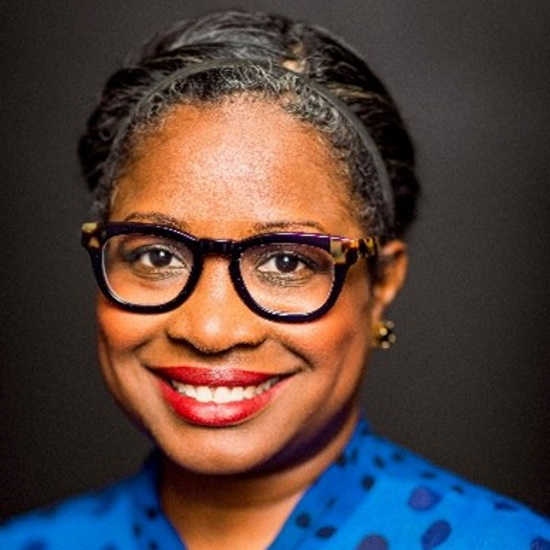
Melissa CrearyUniversity of Michigan 
Melissa CrearyUniversity of Michigan Melissa Creary, PhD, MPH is an Assistant Professor in the Department of Health Management and Policy in the School of Public Health. She is also Senior Advisor of Public Health, Policy, and Equity at the American Thrombosis and Hemostasis Network (ATHN) and Associate Director of Anti-Racism for Michigan Social Health Interventions to Eliminate Disparities (MSHIELD) at Michigan Medicine. She received her PhD in Interdisciplinary Studies (focusing on Health, History, and Culture) at the Graduate Institute for the Liberal Arts (ILA) and Masters in Public Health at Emory University. Over a nine-year career at the Centers for Disease Control and Prevention in the Division of Blood Disorders, she helped create and lead the first national program and data collection system for sickle cell disease (SCD) at the agency. Dr. Creary is an interdisciplinary social scientist who has worked with the sickle cell and bleeding disorder community as a scientist, policy maker, and public health researcher for over 20 years. Her primary research interests include how science, culture, and policy intersect, particularly around ethical, legal, and social concerns (ELSI). Through a health equity lens and using historical and ethnographic methods, she uses sickle cell disease as a case to investigate simultaneous constructions of race and science via the development of policy. Her anti-racist research also theorizes how embodied outcomes of accumulated injustice and exclusion inhibit the receipt of justice even via well-meaning programs, policies, and technologies designed to build equity. She speaks on topics of justice, racism and anti-racism in health and biomedicine, COVID-19, identity politics in health, and bioethics. She has been published in Social Science and Medicine, BioSocieties, Law, Medicine, and Ethics, The American Journal of Bioethics, and JAMA Open Network. 
Victoria Gray

Victoria Gray
Victoria Gray is a 37-year-old wife and mother of 4. She has battled with sickle cell disease type ss for 34 years. Dealing with unbearable pain, multiple blood transfusions, countless hospital visits and energy draining pain medications almost made life unbearable. In 2018 she made the life changing decision to try gene therapy. It was one of the best decisions she has ever made. Victoria hopes that her story will reignite the torch of hope inside the lives of many others whose light has begun to dim like hers once did.
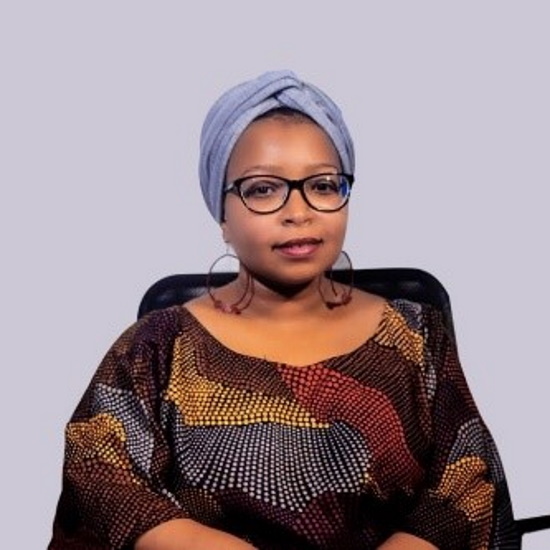
Arafa Salim SaidSickle Cell Disease Patients Community of Tanzania 
Arafa Salim SaidSickle Cell Disease Patients Community of Tanzania Arafa is a sickle cell warrior and has been working passionately in sickle cell disease advocacy in Tanzania and internationally for over 12 years. She is the founder of Sickle Cell Disease Patients Community of Tanzania, which was the first sickle cell disease patient advocacy organization in the country. This group is primarily focused on spreading sickle cell disease awareness, educating families affected by sickle cell disease, and provided hope and social support. Through digital outreach and in-person visits to sickle cell disease clinics, Arafa uses her own life experiences as a sickle cell warrior to offer advice and encouragement. She has also worked extensively with a wide range of media outlets in Tanzania, both in TV and radio, to decrease stigma and misconceptions around sickle cell disease. Beginning earlier this year, Arafa runs a weekly radio segment on Boresha Radio called “Sauti ya Shujaa” which includes interviews and education around sickle cell disease. Arafa has been invited and participated in many national and international conventions to cover the topic around the disease. She has served as a patient representative for medical conferences as well as community advocacy events across many countries. In 2012, she was invited and presented at Harvard University in the United States on sickle cell community outreach in Tanzania. Arafa has been recognized for her work as a community advocate and educator, including as 2017 recipient of the International Sickle Cell Advocate of the year Award by Sickle Cell 101 in the United States. She is a regular contributor in fundraising and charity events, hospital and school visits. In recent years, she has turned her attention to building partnerships with other organizations fighting sickle cell around the world, especially in Africa. In early 2020, she participated in the launch of the East African Sickle Cell Alliance as the Tanzanian representative, alongside advocates and warriors from Kenya and Uganda. She is enthusiastic about participating in the growth of the Umoja Sickle Cell Foundation ( UMASCCO) in her role as secretary. 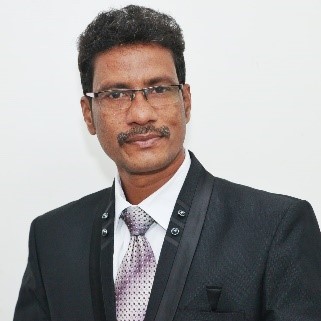
Gautam DongreNational Alliance of Sickle Cell Organizations (NASCO) India 
Gautam DongreNational Alliance of Sickle Cell Organizations (NASCO) India I am father of 2 Sickle Cell Disease (SCD) warriors from Nagpur city, Maharashtra state, India. As Secretary, National Alliance of Sickle Cell Organizations (NASCO), India’s 1st national patient advocacy group for SCD, I represent Govt. of India (GOI) National SCD Council, India’s highest policymaking multi-stakeholder forum on SCD. I am the Board Member of Global Alliance of Sicklecell Disease Organization GASCDO. As Secretary, NASCO, organized 4 National Symposiums on Sickle Cell Disease (SCD): India’s 1st National online event on International Disability Day, 2020 & 2nd on 2022. India’s 1st International online symposium on International Women’s Day, 2021 & 2nd on 2022. I am also invited as speaker at International & National SCD events across globe. I have been working with Sickle Cell Society of India, Maharashtra since a decade and passionate about preventing new births of Sickle Cell across India. |
| 14:50-15:05 |
Clinician's perspective on treating underserved population
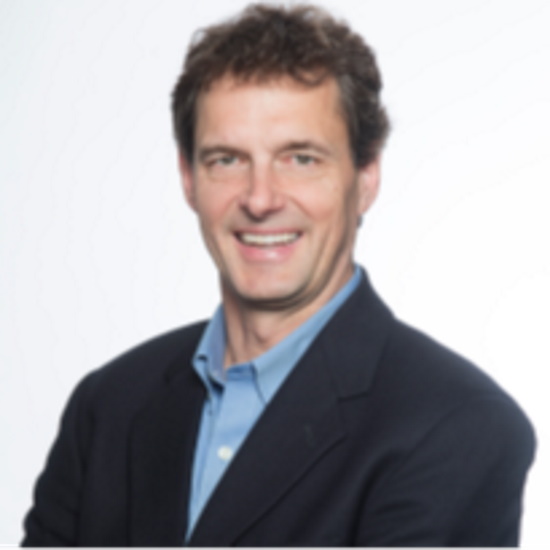
Matthew PorteusStanford University 
Matthew PorteusStanford University Matthew Porteus MD, PhD is the Sutardja Chuk Professor of Definitive and Curative Medicine and a Professor in the Department of Pediatrics, Institute of Stem Cell Biology and Regenerative Medicine and Maternal-Child Health Research Institute at Stanford. His primary research focus is on developing genome editing as an approach to cure disease, particularly those of the blood (most notably sickle cell disease) but also of other organ systems as well. He received his undergraduate degree at Harvard in History and Science where his honors thesis studied the recombinant DNA controversy of the 1970s. He then completed his MD and PhD training at Stanford, clinical training in Pediatric Hematology/Oncology at Boston Children’s Hospital, and post-doctoral research training with Noble Laureate David Baltimore at CalTech. He works as an attending physician on the Pediatric Hematopoietic Stem Cell Transplant service at Lucile Packard Children’s Hospital where he cares for children under going bone marrow transplantation for both malignant and non-malignant diseases. His goal is to combine his research and clinical interests to develop innovative curative therapies. He served on the 2017 National Academy Study Committee of Human Genome Editing and currently serves on the Scientific Advisory Board for WADA on Cell and Gene Doping and the NIH NexTRAC advisory committee evaluating the emergence of new technologies. He has been a scientific founder of CRISPR Tx and an academic founder of Graphite Bio and serves on several SAB’s. He is a strong advocate for assuring that the next generation of transformative medicines reaches the global community in partnership with those communities. |
| 15:05-15:40 |
Panel discussion

Alexis ThompsonChildren’s Hospital of Philadelphia & University of Pennsylvania 
Alexis ThompsonChildren’s Hospital of Philadelphia & University of Pennsylvania Dr Alexis Thompson is Chief, Division of Haematology at the Children’s Hospital of Philadelphia. She is also Professor of Paediatrics at the University of Pennsylvania Perelman School of Medicine and holds the Elias Schwartz MD Endowed Chair in Haematology. Previously, Dr Thompson was the Haematology Section Head at Lurie Children’s Hospital of Chicago in Chicago, Illinois and held the A Watson and Sarah Armour Endowed Chair for Blood Diseases and Cancer. For over 12 years, Dr Thompson was Associate Director for Equity and Minority Health at the Northwestern’s Robert H Lurie Comprehensive Cancer Center. Her research interests include haemoglobinopathies (thalassaemia and sickle cell disease), and stem cell transplantation in paediatric patients, including gene therapy. Her most significant scientific contributions are clinical and translation studies to better understand and treat haemoglobinopathies, leading to landmark findings in the field. She has been a leader in multicentre collaborations, such as the NHLBI-funded Thalassaemia Clinical Research Network and the Sickle Cell Disease Implementation Consortium. She has served on regional and national on advisory committees for governmental agencies as well as non-profit organizations focused on improving healthcare access, increasing workforce diversity and reducing health disparities. As a leader of the American Society of Haematology, Dr Thompson helped to develop a comprehensive report on the current state of clinical care for SCD in an effort to identify unmet medical needs, launch a national sickle cell data collection platform and create a sickle cell learning community to improve outcomes. She is also leading efforts to implement newborn screening and early intervention efforts in sub-Saharan Africa, where the burden of SCD is profound. 
Ambroise WonkamSickleInAfrica & African Society of Human Genetics 
Ambroise WonkamSickleInAfrica & African Society of Human Genetics Ambroise Wonkam is Professor of Genetic medicine and Director of the Mckusick-Nathan Institute and Department of Genetic Medicine at the Johns Hopkins University School of Medicine, Baltimore, USA, and Professor of Genetic Medicine and Director of GeneMAP (Genetic Medicine of African Populations) Research Centter, University of Cape Town, South Africa. Born in Yaoundé, Cameroon, Ambroise Wonkam, MD PhD grew up witnessing the pain, disability, and death caused by sickle cell disease – among family friends, classmates, and colleagues. Very early in his medical education that experience led him to cell biology and, later, to genetics. Focusing on sickle cell disease seemed, then, almost like a calling. With more than 130 peer-reviewed publications on sickle cell disease, supported by a grant from the NIH and Wellcome Trust over the past ten years, Wonkam has won multiple prizes, including the prestigious 2020 Alan Pifer Award. In 2014, he won the competitive Clinical Genetics Society International Award from the British Society of Genetic Medicine. He is the president of the African Society of Human Genetics. 
Victoria Gray

Victoria Gray
Victoria Gray is a 37-year-old wife and mother of 4. She has battled with sickle cell disease type ss for 34 years. Dealing with unbearable pain, multiple blood transfusions, countless hospital visits and energy draining pain medications almost made life unbearable. In 2018 she made the life changing decision to try gene therapy. It was one of the best decisions she has ever made. Victoria hopes that her story will reignite the torch of hope inside the lives of many others whose light has begun to dim like hers once did.

Melissa CrearyUniversity of Michigan 
Melissa CrearyUniversity of Michigan Melissa Creary, PhD, MPH is an Assistant Professor in the Department of Health Management and Policy in the School of Public Health. She is also Senior Advisor of Public Health, Policy, and Equity at the American Thrombosis and Hemostasis Network (ATHN) and Associate Director of Anti-Racism for Michigan Social Health Interventions to Eliminate Disparities (MSHIELD) at Michigan Medicine. She received her PhD in Interdisciplinary Studies (focusing on Health, History, and Culture) at the Graduate Institute for the Liberal Arts (ILA) and Masters in Public Health at Emory University. Over a nine-year career at the Centers for Disease Control and Prevention in the Division of Blood Disorders, she helped create and lead the first national program and data collection system for sickle cell disease (SCD) at the agency. Dr. Creary is an interdisciplinary social scientist who has worked with the sickle cell and bleeding disorder community as a scientist, policy maker, and public health researcher for over 20 years. Her primary research interests include how science, culture, and policy intersect, particularly around ethical, legal, and social concerns (ELSI). Through a health equity lens and using historical and ethnographic methods, she uses sickle cell disease as a case to investigate simultaneous constructions of race and science via the development of policy. Her anti-racist research also theorizes how embodied outcomes of accumulated injustice and exclusion inhibit the receipt of justice even via well-meaning programs, policies, and technologies designed to build equity. She speaks on topics of justice, racism and anti-racism in health and biomedicine, COVID-19, identity politics in health, and bioethics. She has been published in Social Science and Medicine, BioSocieties, Law, Medicine, and Ethics, The American Journal of Bioethics, and JAMA Open Network. 
Arafa Salim SaidSickle Cell Disease Patients Community of Tanzania 
Arafa Salim SaidSickle Cell Disease Patients Community of Tanzania Arafa is a sickle cell warrior and has been working passionately in sickle cell disease advocacy in Tanzania and internationally for over 12 years. She is the founder of Sickle Cell Disease Patients Community of Tanzania, which was the first sickle cell disease patient advocacy organization in the country. This group is primarily focused on spreading sickle cell disease awareness, educating families affected by sickle cell disease, and provided hope and social support. Through digital outreach and in-person visits to sickle cell disease clinics, Arafa uses her own life experiences as a sickle cell warrior to offer advice and encouragement. She has also worked extensively with a wide range of media outlets in Tanzania, both in TV and radio, to decrease stigma and misconceptions around sickle cell disease. Beginning earlier this year, Arafa runs a weekly radio segment on Boresha Radio called “Sauti ya Shujaa” which includes interviews and education around sickle cell disease. Arafa has been invited and participated in many national and international conventions to cover the topic around the disease. She has served as a patient representative for medical conferences as well as community advocacy events across many countries. In 2012, she was invited and presented at Harvard University in the United States on sickle cell community outreach in Tanzania. Arafa has been recognized for her work as a community advocate and educator, including as 2017 recipient of the International Sickle Cell Advocate of the year Award by Sickle Cell 101 in the United States. She is a regular contributor in fundraising and charity events, hospital and school visits. In recent years, she has turned her attention to building partnerships with other organizations fighting sickle cell around the world, especially in Africa. In early 2020, she participated in the launch of the East African Sickle Cell Alliance as the Tanzanian representative, alongside advocates and warriors from Kenya and Uganda. She is enthusiastic about participating in the growth of the Umoja Sickle Cell Foundation ( UMASCCO) in her role as secretary. 
Gautam DongreNational Alliance of Sickle Cell Organizations (NASCO) India 
Gautam DongreNational Alliance of Sickle Cell Organizations (NASCO) India I am father of 2 Sickle Cell Disease (SCD) warriors from Nagpur city, Maharashtra state, India. As Secretary, National Alliance of Sickle Cell Organizations (NASCO), India’s 1st national patient advocacy group for SCD, I represent Govt. of India (GOI) National SCD Council, India’s highest policymaking multi-stakeholder forum on SCD. I am the Board Member of Global Alliance of Sicklecell Disease Organization GASCDO. As Secretary, NASCO, organized 4 National Symposiums on Sickle Cell Disease (SCD): India’s 1st National online event on International Disability Day, 2020 & 2nd on 2022. India’s 1st International online symposium on International Women’s Day, 2021 & 2nd on 2022. I am also invited as speaker at International & National SCD events across globe. I have been working with Sickle Cell Society of India, Maharashtra since a decade and passionate about preventing new births of Sickle Cell across India. |
Chair
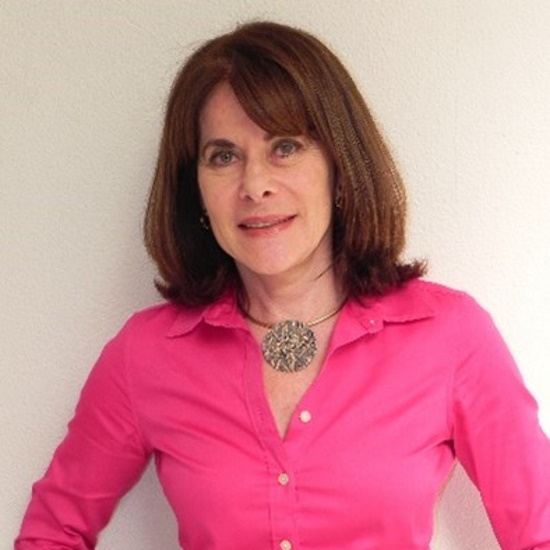
Mayana Zatz
Brazilian Association of Muscular Dystrophy, University of São Paulo

Mayana Zatz
Brazilian Association of Muscular Dystrophy, University of São Paulo
Mayana Zatz holds a PhD in Human and Medical Genetics. She is Professor of Genetics at the University of São Paulo and the Director of the Human Genome and stem-cell center, which has three aims: basic research, technology transfer and education. The Centre has been visited by more than 100,000 patients and relatives with genetic disorders for genetic counselling by a multidisciplinary team (including diagnosis, genetic testing in at-risk relatives, management orientation and follow-up) for two main purposes: patients contributing to new researches and new findings helping patients. Mayana’s research focus has been neuromuscular disorders and ageing. More recently she has been involved with the oncolytic properties of zika virus (transforming our enemy into an ally against brain tumours) and currently also coronavirus pandemic (aiming to identify genetic variants associated to resistance against Sars-Cov-2).
She published over 400 peer-reviewed papers which were cited more than 22,500 times. In 2001 she was awarded the L´Oréal/Unesco prize for “Women in Sciences” representing Latin America and in 2004 the TWAS Prize in Basic Medical Sciences (Academy of Sciences for Developing countries).
Most importantly, since the beginning of Mayana’s career she has been involved in genetic counselling and ethical issues related to scientific advances. In 2005 in the Brazilian Congress Mayana defended the approval of a Bill allowing research with embryonic stem cells which was definitively approved by the Supreme Court in 2008. The Zatz group is using CRISPR technology in cell lines derived from patients with different neuromuscular disorders. She has been faced with many questions raised by the patients’ families regarding the clinical use of CRISPR technology for treating neuromuscular disorders. Mayana published a book in 2011 (not translated to English) called Gen ETHICS: choices our grandparents did not have. This book, intended for lay people, has been adopted by many schools and discussed with young students. Mayana believes that the possibility of gene editing opens new highly relevant questions that need to be discussed with society and she is very honoured to participate in these discussions.
| 16:00-16:15 |
Gene therapy as a benchmark for clinical management of gene-based treatments

John TisdaleNational Heart, Lung and Blood Institute, USA National Institute of Health 
John TisdaleNational Heart, Lung and Blood Institute, USA National Institute of Health John Tisdale received his medical degree from the Medical University of South Carolina in Charleston after obtaining his B.A. in Chemistry from the College of Charleston. He completed an internal medicine and chief residency at Vanderbilt University Medical Center in Nashville and then trained in hematology in the Hematology Branch, National Heart, Lung and Blood Institute (NHLBI), where he served as a postdoctoral fellow. He joined the Molecular and Clinical Hematology Branch of NHLBI in 1998 and is now the Chief of the Cellular and Molecular Therapeutics Branch. In 2020 the College of Charleston recognized Dr. Tisdale as one of their Top 25 History makers in honor of the schools 250-year anniversary and was Samuel J. Heyman Service to America Medal finalist. He was recently elected to the American Society for Clinical Investigation and is a member of the American Society of Hematology. He serves as an editorial board member of the journals Stem Cells, Experimental Hematology, and Molecular Therapy Methods & Clinical Development. He is a frequent ad hoc reviewer for Blood, New England Journal of Medicine, Human Gene Therapy, and Nature Medicine Experimental Hematology Molecular Therapy to name a few. He has served on the NIDDK/NIAMS Institutional Review Board for over 15 years, is a founding member of the NIH Bone Marrow Transplant Consortium, and is an active member of the NIH Intramural Gene Therapy Task Force. Dr. Tisdale’s research and clinical work center on sickle cell disease. His group focuses on developing curative strategies for sickle cell disease through transplantation of allogeneic or genetically modified autologous bone marrow stem cells. He has published over 200 first- and co-author publications. |
|---|---|
| 16:15-16:30 |
Therapeutic innovation by gene editing: the growing number of precise engineering options and early clinical findings

Dan BauerBoston Children's Hospital, Dana-Farber Cancer Institute & Harvard Medical School 
Dan BauerBoston Children's Hospital, Dana-Farber Cancer Institute & Harvard Medical School Daniel Bauer is a physician-scientist whose research focuses on functional genomics to dissect determinants of blood cell development and disease and develop innovative therapies. He identified therapeutic genome editing of the BCL11A erythroid enhancer as a favourable strategy for the β-hemoglobinopathies, now validated in several clinical trials, as well as identified a therapeutic gene editing strategy for amelioration of ELANE-mutant severe congenital neutropenia, described a core NuRD subcomplex critical for fetal haemoglobin (HbF) repression and uncovered ZNF410 as a transcription factor that singularly regulates CHD4 and thus silences HbF. His clinical work focuses on non-malignant haematology. He is Director of the Gene Therapy Program at Dana-Farber/Boston Children’s Cancer and Blood Disorders Center and Fredrickson Associate Professor of Paediatrics at Harvard Medical School. He was recipient of the Young Investigator Award (Society for Paediatric Research 2017), Outstanding New Investigator Award (American Society of Gene and Cell Therapy 2020), and elected member of the American Society of Clinical Investigation (2021). |
| 16:30-16:45 |
Gene editing 2.0: base editing and beyond for sickle cell disease
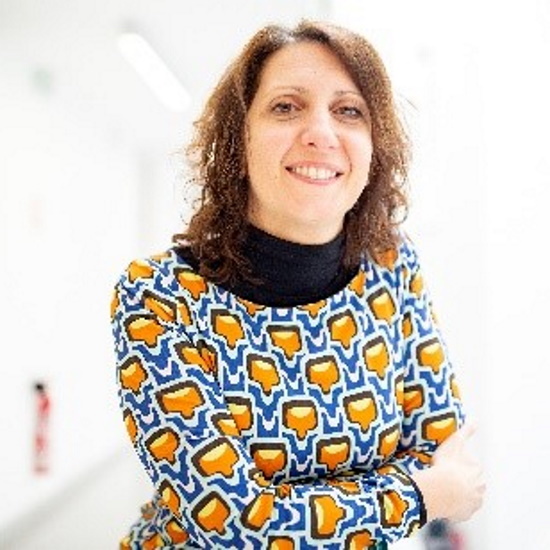
Annarita MiccioImagine Institute, Paris University 
Annarita MiccioImagine Institute, Paris University Dr. Miccio’s main interests are the transcriptional control of hematopoiesis, and the development of therapeutic approaches to β-hemoglobinopathies. As a PhD student, she generated a lentiviral vector (LV) successfully used in an early clinical trial for β-thalassemia. As a post-doc and later as an assistant professor, she gained experience in the gene regulation during erythroid development and in evaluating the efficacy of gene therapy approaches for hematopoietic disorders. In 2014, she was appointed as a Lab Director at the Imagine Institute, where she pursued her studies on transcriptional regulation in normal and diseased stem cells, and their progeny. These basic research studies were instrumental in developing novel strategies for β-hemoglobinopathies. In particular, she optimized the design of a LV currently employed in a clinical trial for sickle cell disease and developed CRISPR/Cas9 strategies for β-hemoglobinopathies. Dr. Miccio is the author of 50 publications and 13 patents. She has coordinated/participated in numerous projects, e.g., funded by ANR, AFM and EU (ERC, HORIZON-RIA and HORIZON-Pathfinder). For her studies, she has received the Sanofi Innovation and the ASGCT Outstanding New Investigator Awards. |
| 16:45-17:15 |
Bioethicist considerations panel discussion
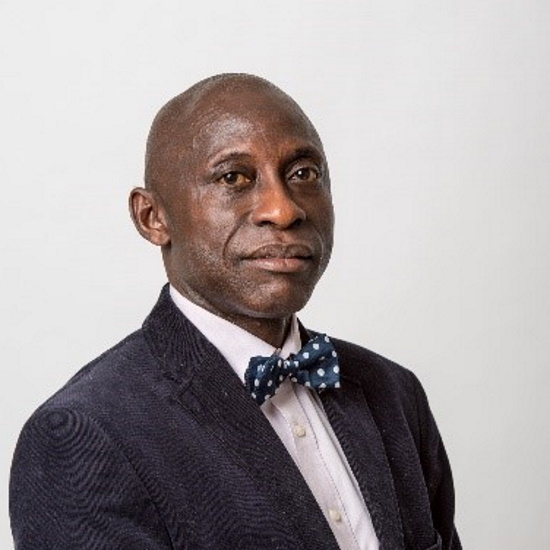
Kofi AnieLondon North West University Healthcare NHS Trust & Imperial College London 
Kofi AnieLondon North West University Healthcare NHS Trust & Imperial College London Dr Kofi Anie MBE is the Psychology Service Lead for children and adults with sickle cell disease and thalassaemia at London North West University Healthcare NHS Trust, and the Deputy Clinical Director of the West London Haemoglobinopathies Coordinating Centre. Dr Anie is a Fellow of the Royal Society of Medicine and Associate Fellow of the British Psychological Society. He has been involved in development of national clinical guidelines and standards of care for sickle cell disease and thalassaemia including the National Institute for Health and Care Excellence (NICE) Guideline – “Sickle Cell Acute Pain Episode,” He is a Scientific Advisor to the Sickle Cell Society, and a Haemoglobinopathies Editor for the Cochrane Library. Dr Anie is a collaborator on international initiatives including the West African Genetic Medicine Centre (WAGMC), and the Ethics and Community Engagement Core Leader for the Sickle Cell Disease Genomics of Africa (SickleGenAfrica) Network. He was awarded with Member of the Order of the British Empire (MBE) for Services to People with Sickle Cell Disease and Thalassaemia in the 2017 Queen’s Birthday Honours. 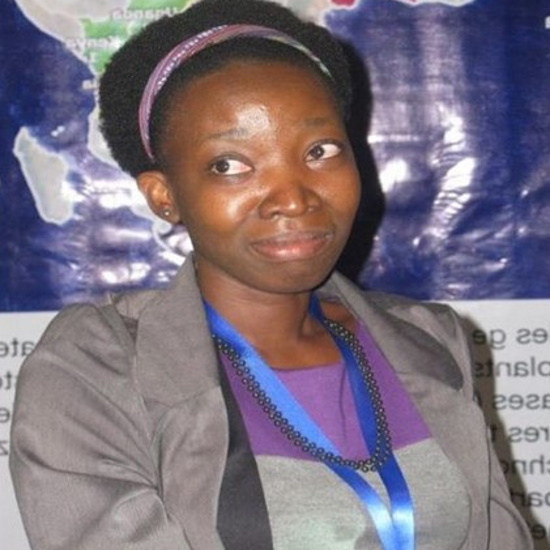
Daima BukiniMuhimbili University of Health and Allied Sciences, Tanzania 
Daima BukiniMuhimbili University of Health and Allied Sciences, Tanzania Dr Daima Bukini has been working at Muhimbili University of Health and Allied Sciences (MUHAS) in Tanzania for the past 16 years. She holds a BSc in Microbiology (University of Dar es Salaam), Masters Degree in Bioethics (University of Pennsylvania) and Masters in Public Health (MUHAS). She completed her PhD in 2022, investigating the Ethical, Legal and Sociocultural Issues (ELSI) on Newborn Screening (NBS) for Sickle Cell Disease (SCD) in Tanzania. She is also a chair of the ELSI working group for the Sickle in Africa, which forms the Sickle Pan African Research Consortium (SPARCO) and Sickle Africa Data Coordinating Centre (SADaCC). Dr Bukini is also a co- principal investigator of the Sickle CHARTA project at MUHAS aiming to strengthen SCD advanced therapy initiatives across four main areas; health, advocacy, research and training. |
| 17:15-17:30 |
Panel discussion

John TisdaleNational Heart, Lung and Blood Institute, USA National Institute of Health 
John TisdaleNational Heart, Lung and Blood Institute, USA National Institute of Health John Tisdale received his medical degree from the Medical University of South Carolina in Charleston after obtaining his B.A. in Chemistry from the College of Charleston. He completed an internal medicine and chief residency at Vanderbilt University Medical Center in Nashville and then trained in hematology in the Hematology Branch, National Heart, Lung and Blood Institute (NHLBI), where he served as a postdoctoral fellow. He joined the Molecular and Clinical Hematology Branch of NHLBI in 1998 and is now the Chief of the Cellular and Molecular Therapeutics Branch. In 2020 the College of Charleston recognized Dr. Tisdale as one of their Top 25 History makers in honor of the schools 250-year anniversary and was Samuel J. Heyman Service to America Medal finalist. He was recently elected to the American Society for Clinical Investigation and is a member of the American Society of Hematology. He serves as an editorial board member of the journals Stem Cells, Experimental Hematology, and Molecular Therapy Methods & Clinical Development. He is a frequent ad hoc reviewer for Blood, New England Journal of Medicine, Human Gene Therapy, and Nature Medicine Experimental Hematology Molecular Therapy to name a few. He has served on the NIDDK/NIAMS Institutional Review Board for over 15 years, is a founding member of the NIH Bone Marrow Transplant Consortium, and is an active member of the NIH Intramural Gene Therapy Task Force. Dr. Tisdale’s research and clinical work center on sickle cell disease. His group focuses on developing curative strategies for sickle cell disease through transplantation of allogeneic or genetically modified autologous bone marrow stem cells. He has published over 200 first- and co-author publications. 
Dan BauerBoston Children's Hospital, Dana-Farber Cancer Institute & Harvard Medical School 
Dan BauerBoston Children's Hospital, Dana-Farber Cancer Institute & Harvard Medical School Daniel Bauer is a physician-scientist whose research focuses on functional genomics to dissect determinants of blood cell development and disease and develop innovative therapies. He identified therapeutic genome editing of the BCL11A erythroid enhancer as a favourable strategy for the β-hemoglobinopathies, now validated in several clinical trials, as well as identified a therapeutic gene editing strategy for amelioration of ELANE-mutant severe congenital neutropenia, described a core NuRD subcomplex critical for fetal haemoglobin (HbF) repression and uncovered ZNF410 as a transcription factor that singularly regulates CHD4 and thus silences HbF. His clinical work focuses on non-malignant haematology. He is Director of the Gene Therapy Program at Dana-Farber/Boston Children’s Cancer and Blood Disorders Center and Fredrickson Associate Professor of Paediatrics at Harvard Medical School. He was recipient of the Young Investigator Award (Society for Paediatric Research 2017), Outstanding New Investigator Award (American Society of Gene and Cell Therapy 2020), and elected member of the American Society of Clinical Investigation (2021). 
Annarita MiccioImagine Institute, Paris University 
Annarita MiccioImagine Institute, Paris University Dr. Miccio’s main interests are the transcriptional control of hematopoiesis, and the development of therapeutic approaches to β-hemoglobinopathies. As a PhD student, she generated a lentiviral vector (LV) successfully used in an early clinical trial for β-thalassemia. As a post-doc and later as an assistant professor, she gained experience in the gene regulation during erythroid development and in evaluating the efficacy of gene therapy approaches for hematopoietic disorders. In 2014, she was appointed as a Lab Director at the Imagine Institute, where she pursued her studies on transcriptional regulation in normal and diseased stem cells, and their progeny. These basic research studies were instrumental in developing novel strategies for β-hemoglobinopathies. In particular, she optimized the design of a LV currently employed in a clinical trial for sickle cell disease and developed CRISPR/Cas9 strategies for β-hemoglobinopathies. Dr. Miccio is the author of 50 publications and 13 patents. She has coordinated/participated in numerous projects, e.g., funded by ANR, AFM and EU (ERC, HORIZON-RIA and HORIZON-Pathfinder). For her studies, she has received the Sanofi Innovation and the ASGCT Outstanding New Investigator Awards. 
Kofi AnieLondon North West University Healthcare NHS Trust & Imperial College London 
Kofi AnieLondon North West University Healthcare NHS Trust & Imperial College London Dr Kofi Anie MBE is the Psychology Service Lead for children and adults with sickle cell disease and thalassaemia at London North West University Healthcare NHS Trust, and the Deputy Clinical Director of the West London Haemoglobinopathies Coordinating Centre. Dr Anie is a Fellow of the Royal Society of Medicine and Associate Fellow of the British Psychological Society. He has been involved in development of national clinical guidelines and standards of care for sickle cell disease and thalassaemia including the National Institute for Health and Care Excellence (NICE) Guideline – “Sickle Cell Acute Pain Episode,” He is a Scientific Advisor to the Sickle Cell Society, and a Haemoglobinopathies Editor for the Cochrane Library. Dr Anie is a collaborator on international initiatives including the West African Genetic Medicine Centre (WAGMC), and the Ethics and Community Engagement Core Leader for the Sickle Cell Disease Genomics of Africa (SickleGenAfrica) Network. He was awarded with Member of the Order of the British Empire (MBE) for Services to People with Sickle Cell Disease and Thalassaemia in the 2017 Queen’s Birthday Honours. 
Daima BukiniMuhimbili University of Health and Allied Sciences, Tanzania 
Daima BukiniMuhimbili University of Health and Allied Sciences, Tanzania Dr Daima Bukini has been working at Muhimbili University of Health and Allied Sciences (MUHAS) in Tanzania for the past 16 years. She holds a BSc in Microbiology (University of Dar es Salaam), Masters Degree in Bioethics (University of Pennsylvania) and Masters in Public Health (MUHAS). She completed her PhD in 2022, investigating the Ethical, Legal and Sociocultural Issues (ELSI) on Newborn Screening (NBS) for Sickle Cell Disease (SCD) in Tanzania. She is also a chair of the ELSI working group for the Sickle in Africa, which forms the Sickle Pan African Research Consortium (SPARCO) and Sickle Africa Data Coordinating Centre (SADaCC). Dr Bukini is also a co- principal investigator of the Sickle CHARTA project at MUHAS aiming to strengthen SCD advanced therapy initiatives across four main areas; health, advocacy, research and training. |
Chair
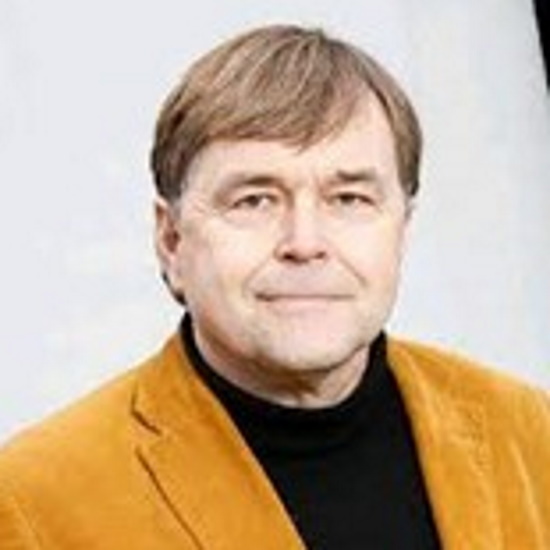
Cor Oosterwijk
VSOP (Patient Organisation for Rare and Genetic Diseases), The Netherlands

Cor Oosterwijk
VSOP (Patient Organisation for Rare and Genetic Diseases), The Netherlands
Cor Oosterwijk, PhD is the Director of VSOP - the Patient Organisation for Rare and Genetic Diseases in The Netherlands. VSOP is a national umbrella organisation with a membership of about 100 patient organisations, and is partner of EURORDIS – Rare Diseases Europe. VSOP’s staff is working on reproductive health, timely diagnosis, genetic screening, quality of care, medical ethics and (access to) therapeutic innovation.
Cor is a patient representative since 2001, and as such represented in several (inter)national committees, projects and organisations in the field of health policy, rare diseases and clinical genetics. At national level, this includes governmental committees in the field of reproductive health (preimplantation genetic testing, prenatal and neonatal screening) as well as his membership of the Insured Package Advisory Committee of the Dutch Healthcare Institute. At international level, he is a board member of EGAN – the European Patients Network for Medical Research and Health; and founder and chairman of the Preparing for Life Foundation, that worked with WHO on international recommendations for preconception care.
Oosterwijk is a medical biologist by education (Utrecht University, The Netherlands). Thereafter, he taught agricultural biotechnology and gene editing for two years. Subsequently, he started his scientific work on Islet Amyloid PolyPeptide overproduction in type 2 diabetes mellitus, studied in tumour models and transgenic mice. Before he started as a patient advocate, he worked for five years as an international clinical trial manager cardiovascular.
| 08:30-08:50 |
The role of patient organisations
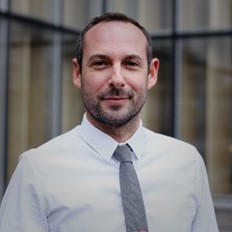
Mathieu BoudesMontsouris Consilium 
Mathieu BoudesMontsouris Consilium Mathieu Boudes is a patient engagement expert providing strategic advice, stakeholder engagement, implementation support, and partnership services to the pharmaceutical companies, patient advocacy groups and larger consultancies to unlock patient insights to R&D, clinical and access teams and public-private consortia. 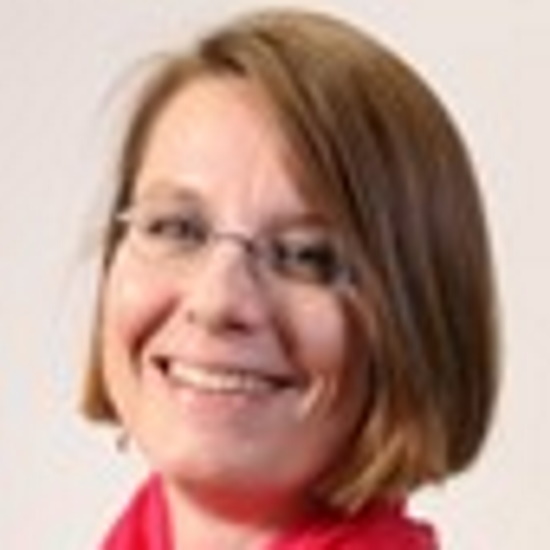
Bettina RyllMelanoma Patient Network Europe & European Commission 
Bettina RyllMelanoma Patient Network Europe & European Commission Dr Ryll holds a medical degree from the Free University of Berlin, Germany and a PhD in Biomedical Sciences from University College London, UK. After losing her husband to melanoma, she founded the Melanoma Patient Network Europe and developed a special interest in patient-centric clinical research, in particular, innovative trial designs and novel drug development concepts, such as MAPPS (medicines' adaptive pathways to patients), previously known as Adaptive Licensing. Lately, her focus has moved to sustainable healthcare models ensuring access to innovative therapies for cancer patients and incentives for sustainable innovation. Dr Ryll is involved in numerous initiatives promoting evidence-based advocacy. She is fascinated by the enormous potential and capacity of patient networks to both educate and support patients as well as to capture data at the primary data source – the patients themselves – and to generate evidence at a granular level non-accessible to outsiders. From 2015 - 2018 Dr Ryll chaired the ESMO Patient Advocates Working Group, the first time this position has been held by a non-oncologist. The PAWG is responsible for the Patient Advocacy Track at the annual ESMO meeting, organises workshops of interest to the wider advocacy and medical community and has an advisory function for ESMO activities. She was also a member of the ESMO Quality of Care Task Force from 2015 – 2018 and is currently a member of the ESMO Investigational Immunotherapy Faculty Group. |
|---|---|
| 08:50-09:00 |
The role of activists and DIY community
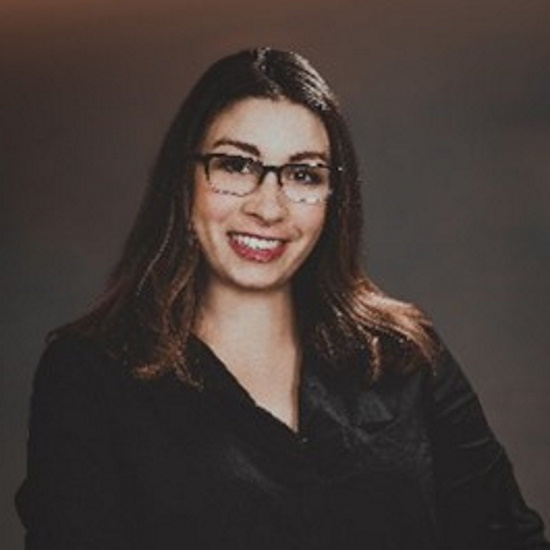
Alex PearlmanBioethicist, Journalist & MIT Media Lab Community Biotechnology Initiative 
Alex PearlmanBioethicist, Journalist & MIT Media Lab Community Biotechnology Initiative Alex Pearlman is a bioethicist and science communicator whose work focuses on the intersection of justice, health policy, and emerging biotechnologies, specifically within the nascent DIYbio/Community Bio movements. She was formerly a researcher in the Wexler Lab at the University of Pennsylvania's Department of Medical Ethics and Health Policy, and is a Research Affiliate with the MIT Media Lab's Community Biotechnology Initiative. Pearlman's reporting and analysis has been featured widely in the international press in outlets such as Stat News, New Scientist, the MIT Technology Review, and others. She is currently the Communications Director at Concentric by Ginkgo, the public health and biosecurity arm of synthetic biology company Ginkgo Bioworks. |
| 09:00-09:10 |
The role of cultural beliefs
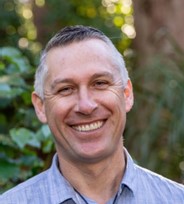
Māui HudsonUniversity of Waikato, Aotearoa New Zealand 
Māui HudsonUniversity of Waikato, Aotearoa New Zealand Māui Hudson affiliates to the Whakatōhea Nation in Aotearoa New Zealand and is a member of the Whakatohea Maori Trust Board. He is an Associate Professor and Director of Te Kotahi Research Institute at the University of Waikato. He is a founding member of Te Mana Raraunga Maori Data Sovereignty Network and Global Indigenous Data Alliance, and is a co-author of the CARE Principles for Indigenous Data Governance and the Te Mata Ira Guidelines for Genomic Research with Maori. |
| 09:10-09:30 |
Panel discussion

Mathieu BoudesMontsouris Consilium 
Mathieu BoudesMontsouris Consilium Mathieu Boudes is a patient engagement expert providing strategic advice, stakeholder engagement, implementation support, and partnership services to the pharmaceutical companies, patient advocacy groups and larger consultancies to unlock patient insights to R&D, clinical and access teams and public-private consortia. 
Bettina RyllMelanoma Patient Network Europe & European Commission 
Bettina RyllMelanoma Patient Network Europe & European Commission Dr Ryll holds a medical degree from the Free University of Berlin, Germany and a PhD in Biomedical Sciences from University College London, UK. After losing her husband to melanoma, she founded the Melanoma Patient Network Europe and developed a special interest in patient-centric clinical research, in particular, innovative trial designs and novel drug development concepts, such as MAPPS (medicines' adaptive pathways to patients), previously known as Adaptive Licensing. Lately, her focus has moved to sustainable healthcare models ensuring access to innovative therapies for cancer patients and incentives for sustainable innovation. Dr Ryll is involved in numerous initiatives promoting evidence-based advocacy. She is fascinated by the enormous potential and capacity of patient networks to both educate and support patients as well as to capture data at the primary data source – the patients themselves – and to generate evidence at a granular level non-accessible to outsiders. From 2015 - 2018 Dr Ryll chaired the ESMO Patient Advocates Working Group, the first time this position has been held by a non-oncologist. The PAWG is responsible for the Patient Advocacy Track at the annual ESMO meeting, organises workshops of interest to the wider advocacy and medical community and has an advisory function for ESMO activities. She was also a member of the ESMO Quality of Care Task Force from 2015 – 2018 and is currently a member of the ESMO Investigational Immunotherapy Faculty Group. 
Alex PearlmanBioethicist, Journalist & MIT Media Lab Community Biotechnology Initiative 
Alex PearlmanBioethicist, Journalist & MIT Media Lab Community Biotechnology Initiative Alex Pearlman is a bioethicist and science communicator whose work focuses on the intersection of justice, health policy, and emerging biotechnologies, specifically within the nascent DIYbio/Community Bio movements. She was formerly a researcher in the Wexler Lab at the University of Pennsylvania's Department of Medical Ethics and Health Policy, and is a Research Affiliate with the MIT Media Lab's Community Biotechnology Initiative. Pearlman's reporting and analysis has been featured widely in the international press in outlets such as Stat News, New Scientist, the MIT Technology Review, and others. She is currently the Communications Director at Concentric by Ginkgo, the public health and biosecurity arm of synthetic biology company Ginkgo Bioworks. 
Māui HudsonUniversity of Waikato, Aotearoa New Zealand 
Māui HudsonUniversity of Waikato, Aotearoa New Zealand Māui Hudson affiliates to the Whakatōhea Nation in Aotearoa New Zealand and is a member of the Whakatohea Maori Trust Board. He is an Associate Professor and Director of Te Kotahi Research Institute at the University of Waikato. He is a founding member of Te Mana Raraunga Maori Data Sovereignty Network and Global Indigenous Data Alliance, and is a co-author of the CARE Principles for Indigenous Data Governance and the Te Mata Ira Guidelines for Genomic Research with Maori. |
Chair
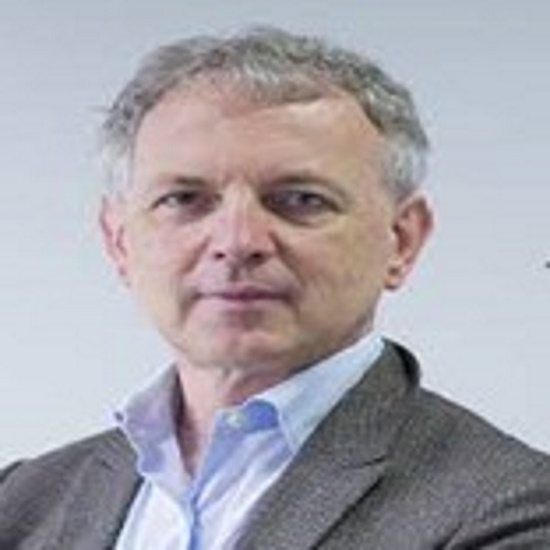
Luigi Naldini
San Raffaele University School of Medicine, Italy

Luigi Naldini
San Raffaele University School of Medicine, Italy
Luigi Naldini is the Director of the San Raffaele Telethon Institute for Gene Therapy and professor at the San Raffaele University in Milan, Italy. For the past 25 years, he has pioneered the development and applications of lentiviral vectors for gene transfer, which have become one of the most widely used tools in biomedical research and, upon recently entering clinical testing, are providing a long-sought effective treatment for several otherwise deadly human diseases. His work also contributed to advance the use of artificial nucleases for targeted genome editing in cell and gene therapy. Luigi received his medical degree from the University of Torino, Italy, and his PhD from the University of Rome. He is Member of the European Molecular Biology Organization (EMBO) and has been President of the European Society of Gene and Cell Therapy (ESGCT). He was awarded the Outstanding Achievement Award from the American Society of Gene and Cell Therapy (ASGCT) and from ESGCT, the Jimenez Diaz Prize, the Beutler Prize from the American Society of Hematology (ASH) and the Jeantet-Collen Prize for Translational Medicine. He was nominated “Grande Ufficiale dell’Ordine Al Merito della Repubblica Italiana”, one of the highest-ranking honours in Italy.
| 09:30-09:40 |
Update on the clinical research involving somatic editing
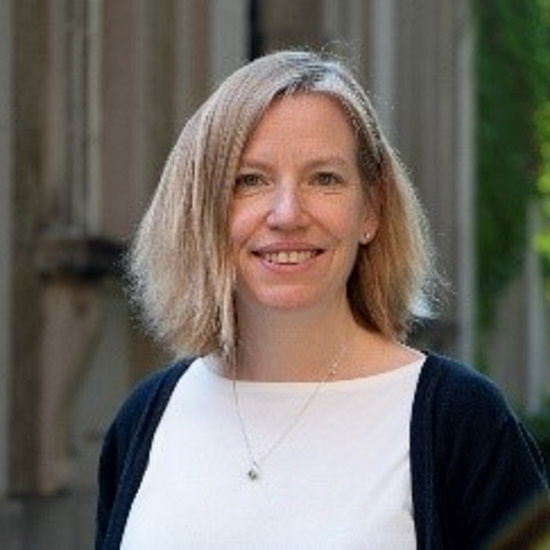
Amy WagersHarvard University 
Amy WagersHarvard University Amy Wagers is the Forst Family Professor of Stem Cell and Regenerative Biology at Harvard University, Senior Investigator in the Section on Islet Cell and Regenerative Biology at the Joslin Diabetes Center, Co-chair of the department of Stem Cell and Regenerative Biology at Harvard, an HHMI Early Career Scientist, and a member of the Paul F. Glenn Laboratories for the Biological Mechanisms of Aging at Harvard Medical School. Dr. Wagers received her PhD in Immunology and Microbial Pathogenesis from Northwestern University, and completed postdoctoral training in stem cell biology at Stanford University. Wagers’s research seeks to understand how changes in stem cell activity impact tissue homeostasis and repair throughout life. Work from her lab provides evidence for the existence of a conserved systemic regulatory axis that modulates tissue maintenance and regeneration across a wide variety of tissues that vary significantly in their intrinsic repair capacity, and her ongoing studies have begun to identify the molecules responsible for age-variant regulation of regenerative potential. Dr. Wagers has authored more than 100 primary research and review articles, and her work has been recognized by awards from the Burroughs Wellcome Fund, Beckman Foundation, WM Keck Foundation, and Glenn Foundation, and National Institutes of Health. In 2013, she received the New York Stem Cell Foundation’s Robertson Prize for outstanding achievement in translational stem cell research. |
|---|---|
| 09:40-09:50 |
Delivery platforms: streamlining gene targeted therapies
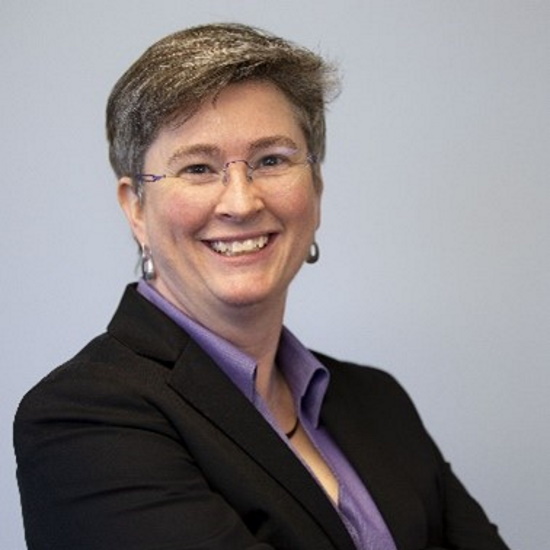
Joni L RutterNational Center for Advancing Translational Sciences, USA National Institute of Health 
Joni L RutterNational Center for Advancing Translational Sciences, USA National Institute of Health Joni L. Rutter, Ph.D., is the director of the National Center for Advancing Translational Sciences (NCATS) at the National Institutes of Health (NIH). Rutter oversees the planning and execution of the Center’s complex, multifaceted programs that aim to overcome scientific and operational barriers impeding the development and delivery of new treatments and other health solutions. Under her direction, NCATS supports innovative tools and strategies to make each step in the translational process more effective and efficient, thus speeding research across a range of diseases, with a particular focus on rare diseases. By advancing the science of translation, NCATS helps turn promising research discoveries into real-world applications that improve people’s health. In her previous role as the NCATS deputy director, Rutter collaborated with colleagues from government, academia, industry, and nonprofit patient organizations to establish robust interactions with NCATS programs. Prior to joining NCATS, Rutter served as the director of scientific programs within the All of Us Research Program, where she led the scientific programmatic development and implementation efforts to build a national research cohort of at least 1 million U.S. participants to advance precision medicine. During her time at NIH, she also has led the Division of Neuroscience and Behavior at the National Institute on Drug Abuse (NIDA). In this role, she developed and coordinated research on basic and clinical neuroscience, brain and behavioral development, genetics, epigenetics, computational neuroscience, bioinformatics, and drug discovery. Rutter also coordinated the NIDA Genetics Consortium and biospecimen repository. Throughout her career, Rutter has earned a national and international reputation for her diverse and unique expertise via more than 50 publications in journals, and she has received several scientific achievement awards, including a SmithKline Beecham Student Award in Pharmacology, a Janssen Research Foundation Young Investigator Award, and a Fellowship Achievement Award from the National Cancer Institute (NCI). Rutter received her Ph.D. from the Department of Pharmacology and Toxicology, Dartmouth Medical School, Hanover, New Hampshire, and completed a fellowship at NCI within the Division of Cancer Epidemiology and Genetics. |
| 09:50-10:00 |
Clinical promise of CAR-T cell therapies using next-generation CRISPR technology
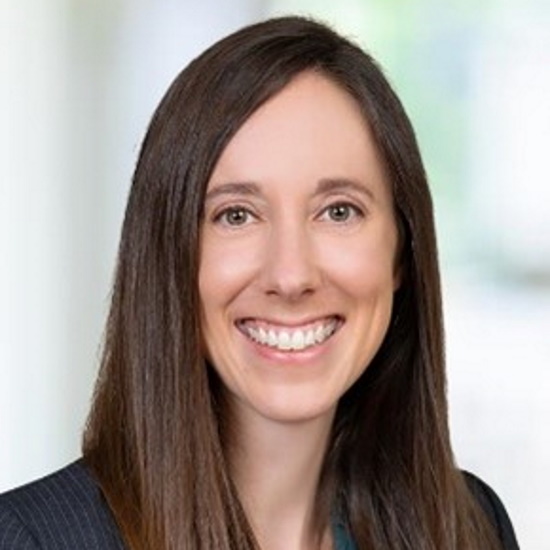
Rachel HaurwitzCaribou Biosciences 
Rachel HaurwitzCaribou Biosciences Rachel is a co-founder of Caribou Biosciences and has been its President and Chief Executive Officer and a director since the company’s inception in 2011. Rachel is an inventor on patents and patent applications covering multiple CRISPR-based technologies, and has co-authored several scientific papers in high-impact journals characterizing CRISPR-Cas systems. In 2014, she was named by Forbes Magazine to the “30 Under 30” list in Science and Healthcare, and in 2016, Fortune Magazine named her to the “40 Under 40” list of the most influential young people in business. In 2018, the Association for Women in Science recognized Rachel with the annual Next Generation Award. She serves on the board of directors of Seer, Inc. and the Biotechnology Innovation Organization (BIO). Rachel earned an A.B. in Biological Sciences from Harvard College and a Ph.D. in Molecular and Cell Biology from the University of California, Berkeley. |
| 10:00-10:10 |
Genetic engineering of allogeneic donor cells for acceptance by the host's immune system
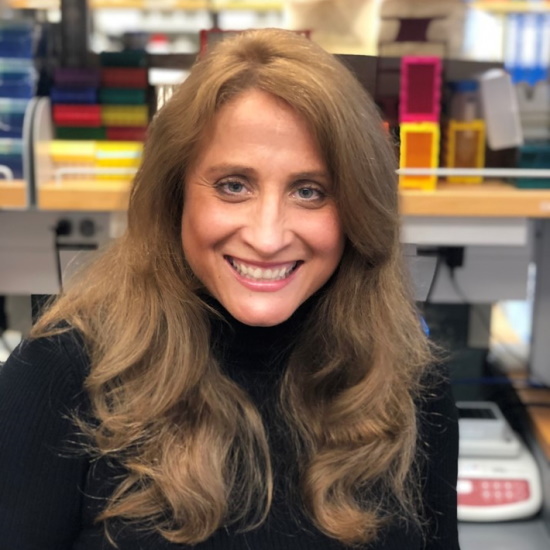
Sonja SchrepferUniversity of California San Francisco & Sana Biotechnology Inc 
Sonja SchrepferUniversity of California San Francisco & Sana Biotechnology Inc Work by Dr. Sonja Schrepfer is at the forefront of stem immunobiology and paves the way for treatment of a wide range of diseases – from supporting functional recovery of failing myocardium to the derivation of other cell types to treat diabetes, blindness, cancer, lung, neurodegenerative, and related diseases. Her work demonstrates that protecting transplanted cells from immune rejection is the key to unlocking the potential of regenerative medicine. Dr. Schrepfer is Professor at the University of California San Francisco (UCSF), Gladstone-UCSF Institute of Genomic Immunology, and a Scientific Founder and SVP (Head of the Hypoimmune Platform) of Sana Biotechnology, Inc. |
| 10:10-10:30 |
Panel discussion

Amy WagersHarvard University 
Amy WagersHarvard University Amy Wagers is the Forst Family Professor of Stem Cell and Regenerative Biology at Harvard University, Senior Investigator in the Section on Islet Cell and Regenerative Biology at the Joslin Diabetes Center, Co-chair of the department of Stem Cell and Regenerative Biology at Harvard, an HHMI Early Career Scientist, and a member of the Paul F. Glenn Laboratories for the Biological Mechanisms of Aging at Harvard Medical School. Dr. Wagers received her PhD in Immunology and Microbial Pathogenesis from Northwestern University, and completed postdoctoral training in stem cell biology at Stanford University. Wagers’s research seeks to understand how changes in stem cell activity impact tissue homeostasis and repair throughout life. Work from her lab provides evidence for the existence of a conserved systemic regulatory axis that modulates tissue maintenance and regeneration across a wide variety of tissues that vary significantly in their intrinsic repair capacity, and her ongoing studies have begun to identify the molecules responsible for age-variant regulation of regenerative potential. Dr. Wagers has authored more than 100 primary research and review articles, and her work has been recognized by awards from the Burroughs Wellcome Fund, Beckman Foundation, WM Keck Foundation, and Glenn Foundation, and National Institutes of Health. In 2013, she received the New York Stem Cell Foundation’s Robertson Prize for outstanding achievement in translational stem cell research. 
Joni L RutterNational Center for Advancing Translational Sciences, USA National Institute of Health 
Joni L RutterNational Center for Advancing Translational Sciences, USA National Institute of Health Joni L. Rutter, Ph.D., is the director of the National Center for Advancing Translational Sciences (NCATS) at the National Institutes of Health (NIH). Rutter oversees the planning and execution of the Center’s complex, multifaceted programs that aim to overcome scientific and operational barriers impeding the development and delivery of new treatments and other health solutions. Under her direction, NCATS supports innovative tools and strategies to make each step in the translational process more effective and efficient, thus speeding research across a range of diseases, with a particular focus on rare diseases. By advancing the science of translation, NCATS helps turn promising research discoveries into real-world applications that improve people’s health. In her previous role as the NCATS deputy director, Rutter collaborated with colleagues from government, academia, industry, and nonprofit patient organizations to establish robust interactions with NCATS programs. Prior to joining NCATS, Rutter served as the director of scientific programs within the All of Us Research Program, where she led the scientific programmatic development and implementation efforts to build a national research cohort of at least 1 million U.S. participants to advance precision medicine. During her time at NIH, she also has led the Division of Neuroscience and Behavior at the National Institute on Drug Abuse (NIDA). In this role, she developed and coordinated research on basic and clinical neuroscience, brain and behavioral development, genetics, epigenetics, computational neuroscience, bioinformatics, and drug discovery. Rutter also coordinated the NIDA Genetics Consortium and biospecimen repository. Throughout her career, Rutter has earned a national and international reputation for her diverse and unique expertise via more than 50 publications in journals, and she has received several scientific achievement awards, including a SmithKline Beecham Student Award in Pharmacology, a Janssen Research Foundation Young Investigator Award, and a Fellowship Achievement Award from the National Cancer Institute (NCI). Rutter received her Ph.D. from the Department of Pharmacology and Toxicology, Dartmouth Medical School, Hanover, New Hampshire, and completed a fellowship at NCI within the Division of Cancer Epidemiology and Genetics. 
Rachel HaurwitzCaribou Biosciences 
Rachel HaurwitzCaribou Biosciences Rachel is a co-founder of Caribou Biosciences and has been its President and Chief Executive Officer and a director since the company’s inception in 2011. Rachel is an inventor on patents and patent applications covering multiple CRISPR-based technologies, and has co-authored several scientific papers in high-impact journals characterizing CRISPR-Cas systems. In 2014, she was named by Forbes Magazine to the “30 Under 30” list in Science and Healthcare, and in 2016, Fortune Magazine named her to the “40 Under 40” list of the most influential young people in business. In 2018, the Association for Women in Science recognized Rachel with the annual Next Generation Award. She serves on the board of directors of Seer, Inc. and the Biotechnology Innovation Organization (BIO). Rachel earned an A.B. in Biological Sciences from Harvard College and a Ph.D. in Molecular and Cell Biology from the University of California, Berkeley. 
Sonja SchrepferUniversity of California San Francisco & Sana Biotechnology Inc 
Sonja SchrepferUniversity of California San Francisco & Sana Biotechnology Inc Work by Dr. Sonja Schrepfer is at the forefront of stem immunobiology and paves the way for treatment of a wide range of diseases – from supporting functional recovery of failing myocardium to the derivation of other cell types to treat diabetes, blindness, cancer, lung, neurodegenerative, and related diseases. Her work demonstrates that protecting transplanted cells from immune rejection is the key to unlocking the potential of regenerative medicine. Dr. Schrepfer is Professor at the University of California San Francisco (UCSF), Gladstone-UCSF Institute of Genomic Immunology, and a Scientific Founder and SVP (Head of the Hypoimmune Platform) of Sana Biotechnology, Inc. |
Chair

Luigi Naldini
San Raffaele University School of Medicine, Italy

Luigi Naldini
San Raffaele University School of Medicine, Italy
Luigi Naldini is the Director of the San Raffaele Telethon Institute for Gene Therapy and professor at the San Raffaele University in Milan, Italy. For the past 25 years, he has pioneered the development and applications of lentiviral vectors for gene transfer, which have become one of the most widely used tools in biomedical research and, upon recently entering clinical testing, are providing a long-sought effective treatment for several otherwise deadly human diseases. His work also contributed to advance the use of artificial nucleases for targeted genome editing in cell and gene therapy. Luigi received his medical degree from the University of Torino, Italy, and his PhD from the University of Rome. He is Member of the European Molecular Biology Organization (EMBO) and has been President of the European Society of Gene and Cell Therapy (ESGCT). He was awarded the Outstanding Achievement Award from the American Society of Gene and Cell Therapy (ASGCT) and from ESGCT, the Jimenez Diaz Prize, the Beutler Prize from the American Society of Hematology (ASH) and the Jeantet-Collen Prize for Translational Medicine. He was nominated “Grande Ufficiale dell’Ordine Al Merito della Repubblica Italiana”, one of the highest-ranking honours in Italy.
| 11:00-12:00 |
Accessibility and price for somatic editing
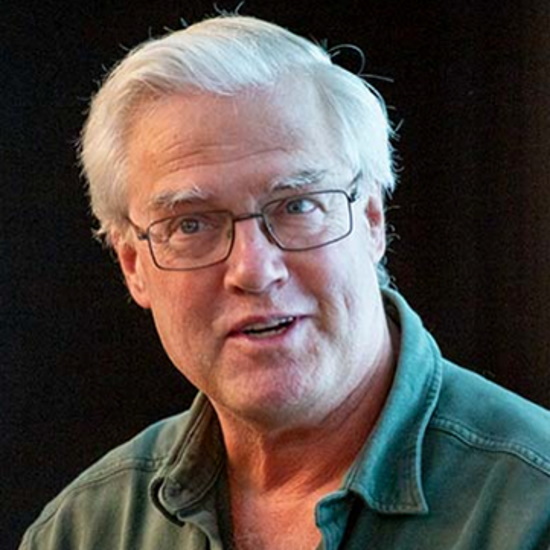
Mike McCuneBill & Melinda Gates Foundation 
Mike McCuneBill & Melinda Gates Foundation Joseph (“Mike”) McCune is Head of the HIV Frontiers Program at the Bill & Melinda Gates Foundation and a Professor Emeritus of Medicine at the University of California, San Francisco. After studies at Harvard College (with Jack Strominger, leading to an AB in biochemistry) and at the Rockefeller University (with Henry Kunkel and Gunter Blobel, leading to a PhD in cell biology and immunology), he started to treat patients with HIV disease as a resident in internal medicine at UCSF from 1982-1984 and has been involved in the HIV/AIDS research field ever since. This work included postdoctoral studies with Irv Weissman at Stanford (1985-1988), exploring the fusogenic properties of the HIV envelope protein and invention of the first humanized mouse model (the SCID-hu mouse) capable of multilineage human hematopoiesis and receptive to infection with primary isolates of HIV, and was continued in companies that he co-founded (SyStemix in 1988 and Progenesys in 1991) and at which he served first as CEO and then as a Scientific Director. In 1995, Dr. McCune returned to academia as an investigator at the Gladstone Institute of Virology and Immunology and then (starting in 2006) as the Chief of the Division of Experimental Medicine (which he founded) at UCSF. Concomitantly, he was the founding PI (and Senior Associate Dean) of the Clinical and Translational Sciences Institute at UCSF (from 2005-08). In recent years, he has helped to form multidisciplinary, collaborative research teams to find a cure for HIV disease, first in the context of NIH- and amfAR-funded “collaboratories” at UCSF (2010-2016) and then as Head of the HIV Frontiers Program at the Bill & Melinda Gates Foundation (2018-present). Throughout this time, he has taken care of patients with HIV disease at the San Francisco General Hospital AIDS Clinic/Ward 86 and has also actively mentored graduate students and postdoctoral fellows, many of whom have gone on to successful careers in academia or biotech/pharma. Dr. McCune’s studies have led to the publication of over 280 peer-reviewed articles and reviews, and he is the holder of 21 patents and inventions. On the basis of this work, he has been awarded the Elizabeth Glaser Pediatric AIDS Foundation Scientist Award in 1996, the Burroughs Wellcome Fund Clinical Scientist Award in Translational Research in 2000, a MERIT Award from the NIH in 2001, the NIH Director’s Pioneer Award in 2004, a Gates Grand Challenges Explorations Phase II Award in 2011, and a number of mentoring awards for his activities with junior faculty, postdoctoral fellows, and graduate students. He is a member of many scientific and professional societies, including the American Society for Clinical Investigation, the American Association of Physicians, and the Henry Kunkel Society. He has also served on the editorial boards of multiple scientific journals. He has served as a board member for a variety of organizations, including The Rockefeller University, the Elizabeth Glaser Pediatric AIDS Foundation, Project Inform, Project Open Hand, the Gay Men’s Health Crisis, the Foundation for AIDS and Immune Research, the Foundation for Vaccine Research, the Alliance for Lupus Research, the Immune Tolerance Network, the Bluefield Project to Cure Frontotemporal Dementia, and for the biotechnology companies, SyStemix, Progenesys, and Prosetta. 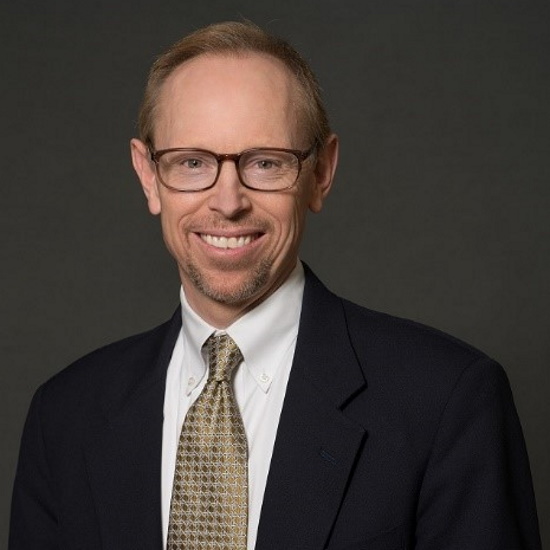
Steve PearsonInstitute for Clinical and Economic Review 
Steve PearsonInstitute for Clinical and Economic Review Steven D. Pearson, MD, MSc is the Founder and President of the Institute for Clinical and Economic Review (ICER). Dr. Pearson is also a Lecturer in the Department of Population Medicine at Harvard Medical School. An internist, health services researcher, and ethicist, Dr. Pearson has served in many advisory and leadership roles in academia and government. In 2004 he was awarded an Atlantic Fellowship from the British Government and chose to serve as Senior Fellow at the National Institute for Health and Clinical Excellence (NICE). Returning to the United States in 2005 he was asked to serve during the George W. Bush Administration as Special Advisor, Technology and Coverage Policy, at the Centers for Medicare and Medicaid Services, and also accepted an appointment as Visiting Scientist in the Department of Bioethics at the National Institutes of Health, a position he maintained from 2005-2019. In other roles, Dr. Pearson has also served as the Vice Chair of the Medicare Evidence Development and Coverage Advisory Committee (MedCAC). Dr. Pearson’s publications include over 150 peer-reviewed articles and commentaries on the role of evidence in the health care system, and the book No Margin, No Mission: Health Care Organizations and the Quest for Ethical Excellence, published by Oxford University Press. 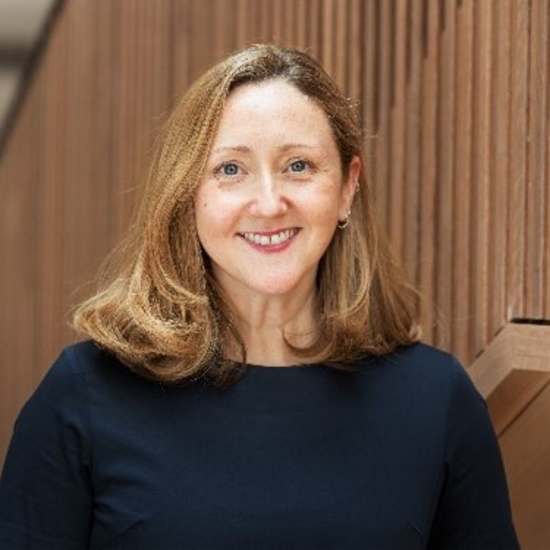
Claire BoothUCL Great Ormond Street Institute of Child Health & AGORA Initiative 
Claire BoothUCL Great Ormond Street Institute of Child Health & AGORA Initiative Prof Claire Booth, MBBS PhD is a Gene Therapist and Paediatric Immunologist at UCL Great Ormond Street Hospital Institute of Child Health in London and leads the clinical stem cell gene therapy programme. She graduated from Guy’s, King’s and St. Thomas’ School of Medicine in 2001 and trained in Paediatrics, subspecialising in Paediatric Immunology and Immunodeficiency. She undertook a Wellcome Trust funded PhD at UCL developing haematopoietic stem cell gene therapy, with continued NIHR and Wellcome Trust post-doctoral support to establish her own research group. She was appointed as a Consultant in Paediatric Immunology at Great Ormond Street Hospital in 2014 and holds an honorary position at Boston Children’s Hospital/Dana Farber Cancer Institute and Harvard Medical School. Claire now works as a clinical academic leading an expanding number of gene therapy clinical trials at Great Ormond Street Hospital which treats patients with immune deficiencies, haematological and metabolic disorders. Her lab group is focused on developing novel therapies for immune system disorders using both gene therapy/gene editing and targeted small molecules. She has extensive experience of translating, leading, and delivering first in human clinical trials and the commercialisation pathway. As an attending physician she oversees the clinical management of patients with immune deficiencies, including hematopoietic stem cell transplantation. Claire is an internationally recognised expert in gene therapy and immunology, an elected board member of the European Society of Gene and Cell Therapy, Chair of the International Committee of the American Society of Gene and Cell Therapy and previously served two terms on the board of the British Society. She is also the co-founder of the AGORA initiative (Access to Gene therapies fOr RAre disease) which has founding members across 6 European countries and brings together clinicians and scientist with direct experience of developing and delivering ex vivo gene therapies for rare diseases, aiming to facilitate access to effective gene therapies for treatment of patients with ultra-rare diseases. |
|---|
Chair
Dr George Daley, Children’s Hospital Boston and Harvard Stem Cell Institute, USA
Dr George Daley, Children’s Hospital Boston and Harvard Stem Cell Institute, USA
George Q. Daley, M.D., Ph.D. is the Samuel E. Lux IV Chair in Hematology and the Director of the Stem Cell Transplantation Program at Children’s Hospital Boston, Professor of Biological Chemistry and Molecular Pharmacology at Harvard Medical School, an investigator of the Howard Hughes Medical Institute, and past-President of the International Society for Stem Cell Research (2007-2008). Dr Daley received his bachelor's degree magna cum laude from Harvard University (1982), a Ph.D. in biology from MIT (1989), and the M.D. from Harvard Medical School summa cum laude (1991). Dr Daley was an inaugural winner of the NIH Director’s Pioneer Award, which provides a five year unrestricted grant to pursue highly innovative research, and received the Judson Daland Prize from the American Philosophical Society for achievement in patient-oriented research and the E. Mead Johnson Award from the American Pediatric Society for contributions to stem cell research.
| 13:00-13:20 |
Prenatal somatic cell editing for severe, early-onset genetic diseases
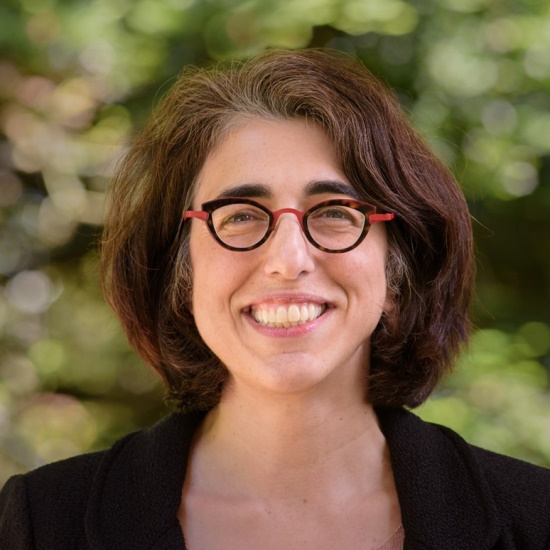
Tippi MacKenzieUniversity of California, San Francisco 
Tippi MacKenzieUniversity of California, San Francisco Tippi MacKenzie is a Professor of Surgery at the University of California, San Francisco and the Director of the Eli and Edythe Broad Institute for Regeneration Medicine. She is a pediatric and fetal surgeon who is focused on developing better ways to diagnose and treat genetic diseases before birth. She runs a translational research lab examining fetal immunology and maternal-fetal tolerance, with the ultimate goal of inventing new fetal therapies for patients with genetic diseases or pregnancy complications. She has moved two fetal molecular therapies from the lab to the clinic as phase 1 clinical trials after obtaining FDA approval: in utero hematopoietic stem cell transplantation to treat fetuses with alpha thalassemia and in utero enzyme replacement therapy in fetuses with lysosomal storage disorders. Her research has been supported by the National Institutes of Health, the March of Dimes, the California Institute for Regeneration Medicine, and the Burroughs-Wellcome Fund. Tippi has been elected to the American Society for Clinical Investigation and the National Academy of Medicine for her innovative work. Tippi trained in classical piano at Juilliard before obtaining her undergraduate degree from Harvard College and her medical degree from Stanford University. She completed her surgical residency at Brigham and Women’s Hospital in Boston and obtained additional fellowships in Fetal Surgery and Pediatric Surgery at the Children’s Hospital of Philadelphia. She joined the faculty at the University of California, San Francisco in 2007 and is now a Professor of Surgery. She recently co-founded the Center for Maternal-Fetal Precision Medicine, with the aim of accelerating the processes that link basic research to clinical trials to improve maternal, fetal, and neonatal health. This Center is testing methods to improve prenatal diagnosis of birth defects and developing new cellular and molecular therapies for definitive fetal treatment. |
|---|---|
| 13:20-13:40 |
CRISPR correction of heart and muscle disease
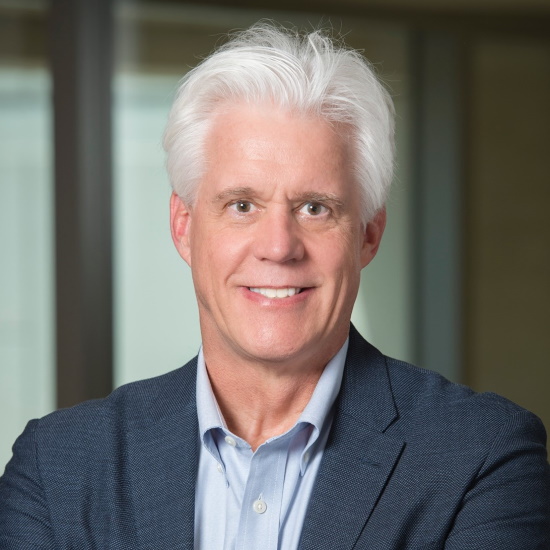
Eric OlsonUniversity of Texas Southwestern Medical Center 
Eric OlsonUniversity of Texas Southwestern Medical Center Eric Olson is the founding Chair of the Department of Molecular Biology at UT Southwestern Medical Center. He also directs the Hamon Center for Regenerative Science and Medicine and the Wellstone Center for Muscular Dystrophy Research at UT Southwestern. He holds the Robert A. Welch Distinguished Chair and the Annie and Willie Nelson Professorship in Stem Cell Research. Eric Olson and his trainees discovered many of the key genes and mechanisms responsible for development and disease of the heart and other muscles. His most recent work has provided new strategies for correction of genetic disorders of muscle and the heart using CRISPR gene editing. Dr. Olson is a member of the U.S. National Academy of Sciences, the Institute of Medicine, and the American Academy of Arts and Sciences and has received numerous additional honors for his work. He has co-founded multiple biotechnology companies to design new therapies for heart and muscle disease. |
| 13:40-14:00 |
Gene silencing by epigenome editing for therapeutic uses
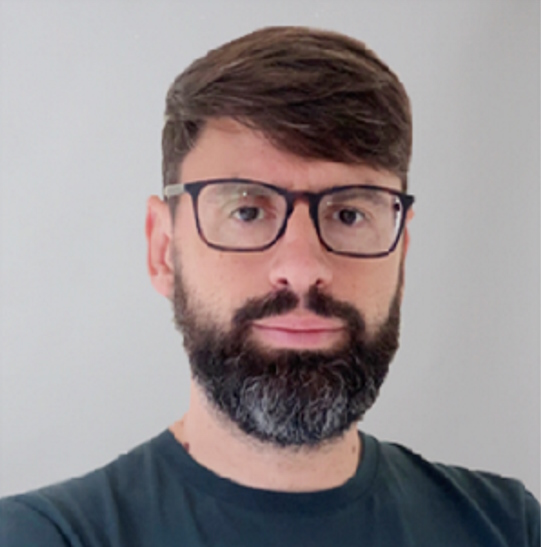
Professor Angelo LombardoSan Raffaele-Telethon Institute for Gene Therapy (SR-Tiget) & Vita-Salute San Raffaele University 
Professor Angelo LombardoSan Raffaele-Telethon Institute for Gene Therapy (SR-Tiget) & Vita-Salute San Raffaele University Angelo Lombardo is a Professor of Tissue Biology and Regenerative Medicine at Vita-Salute San Raffaele University (UniSR; Milan, IT) and a Group Leader at the San Raffaele-Telethon Institute for Gene Therapy (SR-Tiget; Milan, IT). He is also a co-founder of Chroma Medicine Inc. (Boston, MA, USA). His research focuses on the development and application of innovative gene therapy technologies, including genome and epigenome editing. Throughout his career, he has published over 40 articles in peer-reviewed journals, including Cell, Nature, Nature Biotechnology, and Nature Methods. He is an inventor on several patent applications related to his work and has received numerous prestigious international awards, including the Young Investigator Award and the Excellence in Research Award from the European Society of Gene and Cell Therapy. |
| 14:00-14:20 |
Creating a turnkey system for engineering CRISPR therapeutics for N=1 genetic disease
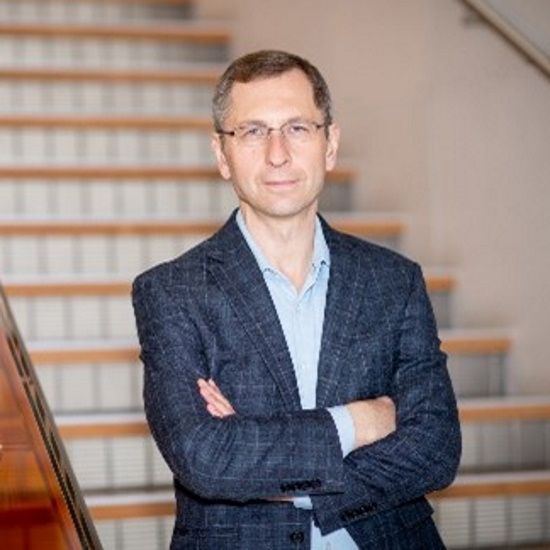
Fyodor UrnovUniversity of California, Berkeley 
Fyodor UrnovUniversity of California, Berkeley Fyodor Urnov is a Professor of Molecular Therapeutics at UC Berkeley and a Scientific Director at its Innovative Genomics Institute. He co-developed the toolbox of human genome and epigenome editing and led the team that developed a strategy for genome editing in the hemoglobinopathies, sickle cell disease and beta-thalassemia, that has yielded sustained clinical benefit for subjects in several ongoing clinical trials. At the IGI Fyodor directs efforts to develop scalable CRISPR-based approaches to treat diseases of the immune system, sickle cell disease, neurodegeneration, and neuroinflammation. His recent op-ed in the New York Times describes a major goal for the field of genomic therapies and a key focus of Fyodor's work at the IGI - expanding access to CRISPR-based treatments for N=1 genetic disease. |
| 14:20-14:40 |
Increasing capacity for diagnosing, manufacturing treatments, and treating genetic diseases
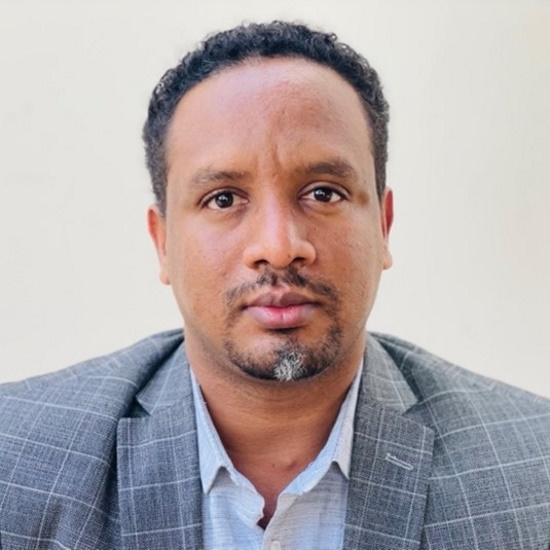
Sofonias TessemaAfrica Centres for Disease Control and Prevention (CDC) 
Sofonias TessemaAfrica Centres for Disease Control and Prevention (CDC) Sofonias Tessema is the Program Lead for Pathogen Genomics at the Africa CDC. Sofonias received a PhD degree from the Walter and Eliza Hall Institute at the University of Melbourne and was a postdoctoral scholar at the University of California in San Francisco. Sofonias is passionate about capacity building for the implementation of genomic and digital epidemiology for public health in Africa. |
| 14:40-15:30 |
Panel discussion

Tippi MacKenzieUniversity of California, San Francisco 
Tippi MacKenzieUniversity of California, San Francisco Tippi MacKenzie is a Professor of Surgery at the University of California, San Francisco and the Director of the Eli and Edythe Broad Institute for Regeneration Medicine. She is a pediatric and fetal surgeon who is focused on developing better ways to diagnose and treat genetic diseases before birth. She runs a translational research lab examining fetal immunology and maternal-fetal tolerance, with the ultimate goal of inventing new fetal therapies for patients with genetic diseases or pregnancy complications. She has moved two fetal molecular therapies from the lab to the clinic as phase 1 clinical trials after obtaining FDA approval: in utero hematopoietic stem cell transplantation to treat fetuses with alpha thalassemia and in utero enzyme replacement therapy in fetuses with lysosomal storage disorders. Her research has been supported by the National Institutes of Health, the March of Dimes, the California Institute for Regeneration Medicine, and the Burroughs-Wellcome Fund. Tippi has been elected to the American Society for Clinical Investigation and the National Academy of Medicine for her innovative work. Tippi trained in classical piano at Juilliard before obtaining her undergraduate degree from Harvard College and her medical degree from Stanford University. She completed her surgical residency at Brigham and Women’s Hospital in Boston and obtained additional fellowships in Fetal Surgery and Pediatric Surgery at the Children’s Hospital of Philadelphia. She joined the faculty at the University of California, San Francisco in 2007 and is now a Professor of Surgery. She recently co-founded the Center for Maternal-Fetal Precision Medicine, with the aim of accelerating the processes that link basic research to clinical trials to improve maternal, fetal, and neonatal health. This Center is testing methods to improve prenatal diagnosis of birth defects and developing new cellular and molecular therapies for definitive fetal treatment. 
Eric OlsonUniversity of Texas Southwestern Medical Center 
Eric OlsonUniversity of Texas Southwestern Medical Center Eric Olson is the founding Chair of the Department of Molecular Biology at UT Southwestern Medical Center. He also directs the Hamon Center for Regenerative Science and Medicine and the Wellstone Center for Muscular Dystrophy Research at UT Southwestern. He holds the Robert A. Welch Distinguished Chair and the Annie and Willie Nelson Professorship in Stem Cell Research. Eric Olson and his trainees discovered many of the key genes and mechanisms responsible for development and disease of the heart and other muscles. His most recent work has provided new strategies for correction of genetic disorders of muscle and the heart using CRISPR gene editing. Dr. Olson is a member of the U.S. National Academy of Sciences, the Institute of Medicine, and the American Academy of Arts and Sciences and has received numerous additional honors for his work. He has co-founded multiple biotechnology companies to design new therapies for heart and muscle disease. 
Professor Angelo LombardoSan Raffaele-Telethon Institute for Gene Therapy (SR-Tiget) & Vita-Salute San Raffaele University 
Professor Angelo LombardoSan Raffaele-Telethon Institute for Gene Therapy (SR-Tiget) & Vita-Salute San Raffaele University Angelo Lombardo is a Professor of Tissue Biology and Regenerative Medicine at Vita-Salute San Raffaele University (UniSR; Milan, IT) and a Group Leader at the San Raffaele-Telethon Institute for Gene Therapy (SR-Tiget; Milan, IT). He is also a co-founder of Chroma Medicine Inc. (Boston, MA, USA). His research focuses on the development and application of innovative gene therapy technologies, including genome and epigenome editing. Throughout his career, he has published over 40 articles in peer-reviewed journals, including Cell, Nature, Nature Biotechnology, and Nature Methods. He is an inventor on several patent applications related to his work and has received numerous prestigious international awards, including the Young Investigator Award and the Excellence in Research Award from the European Society of Gene and Cell Therapy. 
Fyodor UrnovUniversity of California, Berkeley 
Fyodor UrnovUniversity of California, Berkeley Fyodor Urnov is a Professor of Molecular Therapeutics at UC Berkeley and a Scientific Director at its Innovative Genomics Institute. He co-developed the toolbox of human genome and epigenome editing and led the team that developed a strategy for genome editing in the hemoglobinopathies, sickle cell disease and beta-thalassemia, that has yielded sustained clinical benefit for subjects in several ongoing clinical trials. At the IGI Fyodor directs efforts to develop scalable CRISPR-based approaches to treat diseases of the immune system, sickle cell disease, neurodegeneration, and neuroinflammation. His recent op-ed in the New York Times describes a major goal for the field of genomic therapies and a key focus of Fyodor's work at the IGI - expanding access to CRISPR-based treatments for N=1 genetic disease. 
Sofonias TessemaAfrica Centres for Disease Control and Prevention (CDC) 
Sofonias TessemaAfrica Centres for Disease Control and Prevention (CDC) Sofonias Tessema is the Program Lead for Pathogen Genomics at the Africa CDC. Sofonias received a PhD degree from the Walter and Eliza Hall Institute at the University of Melbourne and was a postdoctoral scholar at the University of California in San Francisco. Sofonias is passionate about capacity building for the implementation of genomic and digital epidemiology for public health in Africa. |
Chair
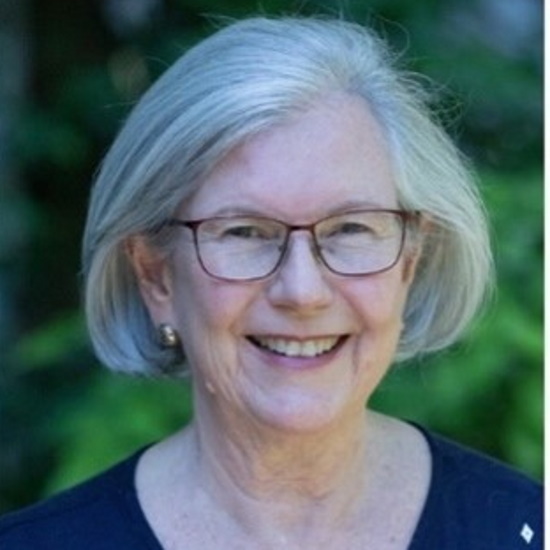
Michèle Ramsay
Wits Sydney Brenner Institute for Molecular Bioscience (SBIMB) & The University of the Witwatersrand

Michèle Ramsay
Wits Sydney Brenner Institute for Molecular Bioscience (SBIMB) & The University of the Witwatersrand
Michèle Ramsay (PhD) is director of the Wits Sydney Brenner Institute for Molecular Bioscience (SBIMB), Professor in Human Genetics and South African Research Chair in Genomics and Bioinformatics of African Populations. Her research aims to shed light on the role of African population genomic variation in susceptibility to diseases, in the context of the ethnic and environmental diversity across the continent. In 2019/2020 she was a member of the International Commission on the Clinical Use of Human Germline Genome Editing (convened by the UK Royal Academy of Science and U.S. National Academy of Medicine) published in September 2020. She is on the Editorial Board for Human Molecular Genetics and is Guest Editor for a Special Issue on “Evolutionary Genetics in Africa”. She is on the Scientific Advisory Committee of the H3Africa Bioinformatics Network (H3ABioNet), Advisory Panel (Africa) for the Wellcome Genome Campus Advanced Courses and Scientific Conferences Overseas Courses, External Advisory Board of EU-Africa PerMed Consortium, Omics lead for the formative phase of the African Population Cohorts Consortium (APCC), and co-chair of the International Hundred-thousand+ Cohorts Consortium (IHCC). Michèle is President of the International Federation of Human Genetics Societies and chair of the International Scientific Programme Committee for the International Congress of Human Genetics. Her recent awards include: DSI Distinguished Woman Researcher 2019 award (August 2019); NSTF-South32 Lifetime Achievement Award (July 2020); and Gold Medal from the South African Medical Research Council (March 2021); Science Team Award to the SBIMB from the National Research Foundation 2022 (South Africa). Ramsay has supervised and mentored young scientists at Wits and across Africa and continues to promote capacity development for genetic and genomic research and genetic services in African settings.
| 16:00-16:30 |
Current known work on somatic editing globally and the relevant regulatory systems in place
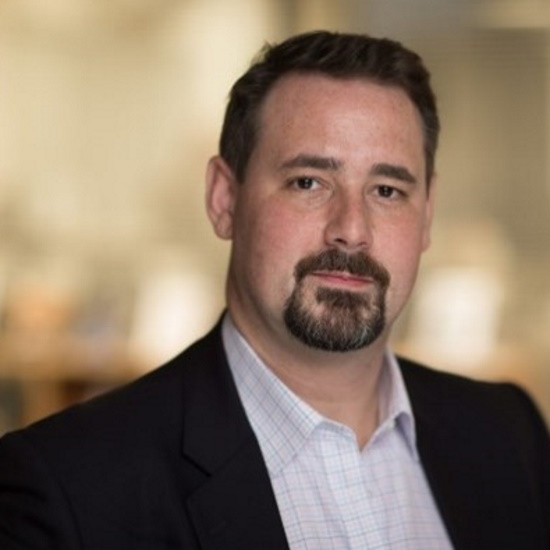
Piers MillettInternational Biosecurity and Biosafety Initiative for Science 
Piers MillettInternational Biosecurity and Biosafety Initiative for Science Piers D Millett, PhD is Executive Director of the International Biosecurity and Biosafety Initiative for Science (IBBIS). IBBIS is a new international organization dedicated to strengthening global biosecurity norms and developing innovative tools and incentives to uphold them. Dr Millett is a certified biorisk management professional, with a specialization in biosecurity. Dr Millett was Deputy Head of the Implementation Support Unit for the Biological Weapons Convention (BWC), a treaty for which he worked for over a decade. He has consulted for the World Health Organization, supporting their integration of research and development into responses to public health emergencies and considering the health implications of advances in technology. As Vice President for Responsibility for iGEM Foundation (International Genetically Engineered Machines Competition), Dr Millett established and ran a program strengthening the culture of responsibility and risk management with more than 300 projects led by more than 4000 young scientists and engineers from 45 countries across every inhabited continent. Trained originally as a microbiologist, Dr Millett has worked closely with the citizen science movement, synthetic biologists, the biotechnology industry as well as national and international policymakers and decisionmakers. He has collaborated with a range of intergovernmental organizations spanning human and animal health, humanitarian law, disarmament, security, border control, law enforcement, and weapons of mass destruction— both inside and out of the United Nations system. He holds a PhD in International Relations and Affairs, an MRes in Research Methodology, and an MA in International Politics and Security Studies—all from the University of Bradford. He has a BSc in Microbiology from the University of Leeds. 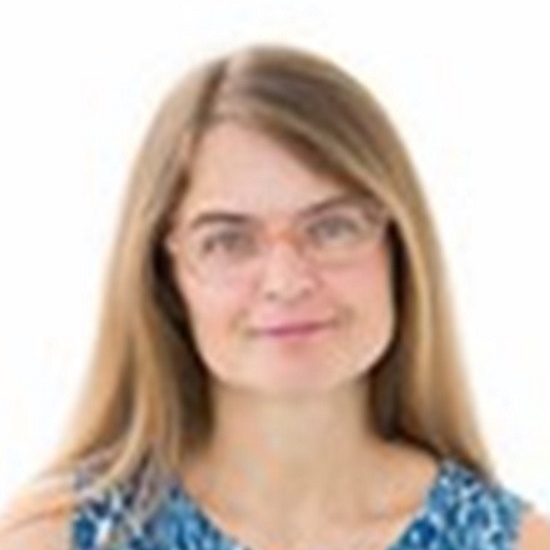
Katherine LittlerWorld Health Organization 
Katherine LittlerWorld Health Organization Katherine Littler is currently the co-lead of the Health Ethics & Governance Unit at WHO Headquarters, Geneva. She is passionate about embedding ethics more effectively in global health decision making and increasing ethics capacity around the globe. Whilst a lot of her current focus is on COVID-related work, she is also focused on realizing the potential benefits of emerging technologies in different settings, with particular reference to human genome editing; the ethics and governance of clinical trial design and identifying gaps in ethical oversight in global health. |
|---|---|
| 16:30-16:45 |
Why in vivo somatic editing must be a priority for low- and middle-income countries
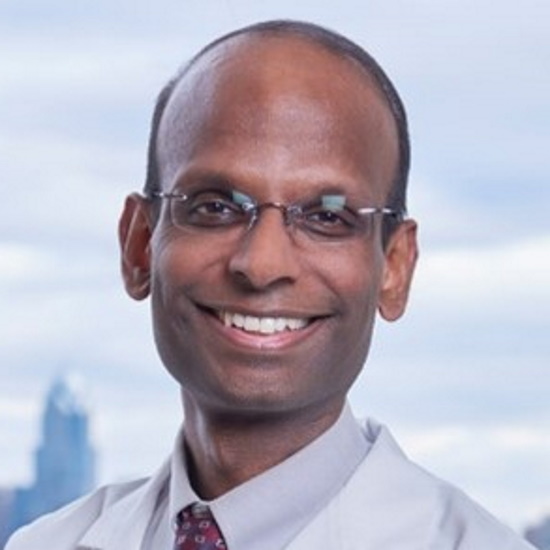
Kiran MusunuruUniversity of Pennsylvania 
Kiran MusunuruUniversity of Pennsylvania An actively practicing cardiologist and committed teacher, Kiran Musunuru, M.D., Ph.D., M.P.H., M.L., is Professor of Cardiovascular Medicine and Genetics in the Perelman School of Medicine at the University of Pennsylvania. His research focuses on the genetics of heart disease and seeks to identify genetic factors that protect against disease and use them to develop new therapies. He is a recipient of the Presidential Early Career Award for Scientists and Engineers from the White House, the American Heart Association's Award of Meritorious Achievement and Joseph A. Vita Award, the American Philosophical Society's Judson Daland Prize for Outstanding Achievement in Clinical Investigation, the American Federation for Medical Research's Outstanding Investigator Award, and Harvard University's Fannie Cox Prize for Excellence in Science Teaching. He recently served as Editor-in-Chief of the scientific journal Circulation: Genomic and Precision Medicine. He is author of The CRISPR Generation: The Story of the World's First Gene-Edited Babies and Genome Editing: A Practical Guide to Research and Clinical Applications. He is co-founder and Senior Scientific Advisor of Verve Therapeutics. |
| 16:45-17:00 |
Ethical considerations for regulation and policy approaches
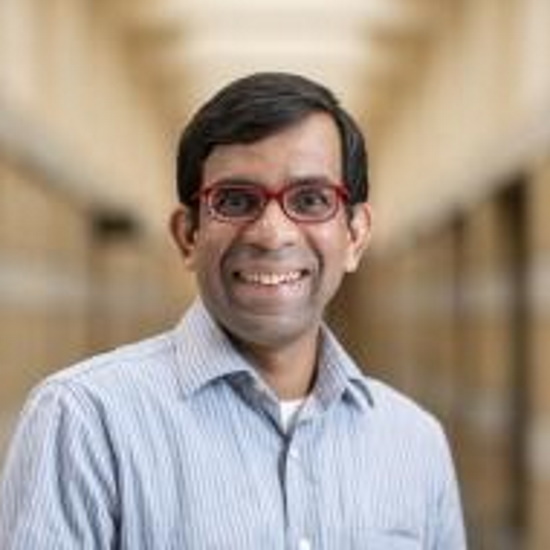
Kaushik Sunder RajanUniversity of Chicago 
Kaushik Sunder RajanUniversity of Chicago Professor of Anthropology and of Social Sciences and Co-Director, Chicago Center for Contemporary Theory. My work lies at the intersection of Medical Anthropology and Science and Technology Studies (STS), with commitments to social theories of capitalism and postcolonial studies. Throughout my career, I have had a three-fold set of intellectual commitments: (a) to explore the nature of scientific knowledge, practice, and institutionalization; (b) to elucidate political economic structures that operate across multiple scales using ethnography; and (c) to theorize contemporary capitalism. My first two books focused on the global political economy of the life sciences and biomedicine, with an empirical focus on the United States and India. My first book, Biocapital: The Constitution of Postgenomic Life (Duke, 2006), is a multi-sited ethnography of genomics and post-genomic drug development marketplaces in the United States and India. My second book, Pharmocracy: Knowledge, Value and Politics in Global Biomedicine (Duke, 2017) elucidates the political economy of global pharmaceuticals as seen from contemporary India. Empirically, Pharmocracy traces the decade-long trajectory of pharmaceutical politics after India’s harmonization of clinical trials and intellectual property regimes with globally mandated norms in the mid-2000s. It thereby considers two domains of biomedical politics together, one concerning clinical trials and the other concerning intellectual property and access to medicines. Theoretically, Pharmocracy provokes questions about how value, politics and knowledge come to be related to one another in contemporary global pharmaceutical economies in ways that put both health and democracy at stake. |
| 17:00-17:30 |
Panel discussion

Katherine LittlerWorld Health Organization 
Katherine LittlerWorld Health Organization Katherine Littler is currently the co-lead of the Health Ethics & Governance Unit at WHO Headquarters, Geneva. She is passionate about embedding ethics more effectively in global health decision making and increasing ethics capacity around the globe. Whilst a lot of her current focus is on COVID-related work, she is also focused on realizing the potential benefits of emerging technologies in different settings, with particular reference to human genome editing; the ethics and governance of clinical trial design and identifying gaps in ethical oversight in global health. 
Piers MillettInternational Biosecurity and Biosafety Initiative for Science 
Piers MillettInternational Biosecurity and Biosafety Initiative for Science Piers D Millett, PhD is Executive Director of the International Biosecurity and Biosafety Initiative for Science (IBBIS). IBBIS is a new international organization dedicated to strengthening global biosecurity norms and developing innovative tools and incentives to uphold them. Dr Millett is a certified biorisk management professional, with a specialization in biosecurity. Dr Millett was Deputy Head of the Implementation Support Unit for the Biological Weapons Convention (BWC), a treaty for which he worked for over a decade. He has consulted for the World Health Organization, supporting their integration of research and development into responses to public health emergencies and considering the health implications of advances in technology. As Vice President for Responsibility for iGEM Foundation (International Genetically Engineered Machines Competition), Dr Millett established and ran a program strengthening the culture of responsibility and risk management with more than 300 projects led by more than 4000 young scientists and engineers from 45 countries across every inhabited continent. Trained originally as a microbiologist, Dr Millett has worked closely with the citizen science movement, synthetic biologists, the biotechnology industry as well as national and international policymakers and decisionmakers. He has collaborated with a range of intergovernmental organizations spanning human and animal health, humanitarian law, disarmament, security, border control, law enforcement, and weapons of mass destruction— both inside and out of the United Nations system. He holds a PhD in International Relations and Affairs, an MRes in Research Methodology, and an MA in International Politics and Security Studies—all from the University of Bradford. He has a BSc in Microbiology from the University of Leeds. 
Kiran MusunuruUniversity of Pennsylvania 
Kiran MusunuruUniversity of Pennsylvania An actively practicing cardiologist and committed teacher, Kiran Musunuru, M.D., Ph.D., M.P.H., M.L., is Professor of Cardiovascular Medicine and Genetics in the Perelman School of Medicine at the University of Pennsylvania. His research focuses on the genetics of heart disease and seeks to identify genetic factors that protect against disease and use them to develop new therapies. He is a recipient of the Presidential Early Career Award for Scientists and Engineers from the White House, the American Heart Association's Award of Meritorious Achievement and Joseph A. Vita Award, the American Philosophical Society's Judson Daland Prize for Outstanding Achievement in Clinical Investigation, the American Federation for Medical Research's Outstanding Investigator Award, and Harvard University's Fannie Cox Prize for Excellence in Science Teaching. He recently served as Editor-in-Chief of the scientific journal Circulation: Genomic and Precision Medicine. He is author of The CRISPR Generation: The Story of the World's First Gene-Edited Babies and Genome Editing: A Practical Guide to Research and Clinical Applications. He is co-founder and Senior Scientific Advisor of Verve Therapeutics. 
Kaushik Sunder RajanUniversity of Chicago 
Kaushik Sunder RajanUniversity of Chicago Professor of Anthropology and of Social Sciences and Co-Director, Chicago Center for Contemporary Theory. My work lies at the intersection of Medical Anthropology and Science and Technology Studies (STS), with commitments to social theories of capitalism and postcolonial studies. Throughout my career, I have had a three-fold set of intellectual commitments: (a) to explore the nature of scientific knowledge, practice, and institutionalization; (b) to elucidate political economic structures that operate across multiple scales using ethnography; and (c) to theorize contemporary capitalism. My first two books focused on the global political economy of the life sciences and biomedicine, with an empirical focus on the United States and India. My first book, Biocapital: The Constitution of Postgenomic Life (Duke, 2006), is a multi-sited ethnography of genomics and post-genomic drug development marketplaces in the United States and India. My second book, Pharmocracy: Knowledge, Value and Politics in Global Biomedicine (Duke, 2017) elucidates the political economy of global pharmaceuticals as seen from contemporary India. Empirically, Pharmocracy traces the decade-long trajectory of pharmaceutical politics after India’s harmonization of clinical trials and intellectual property regimes with globally mandated norms in the mid-2000s. It thereby considers two domains of biomedical politics together, one concerning clinical trials and the other concerning intellectual property and access to medicines. Theoretically, Pharmocracy provokes questions about how value, politics and knowledge come to be related to one another in contemporary global pharmaceutical economies in ways that put both health and democracy at stake. |
Chair
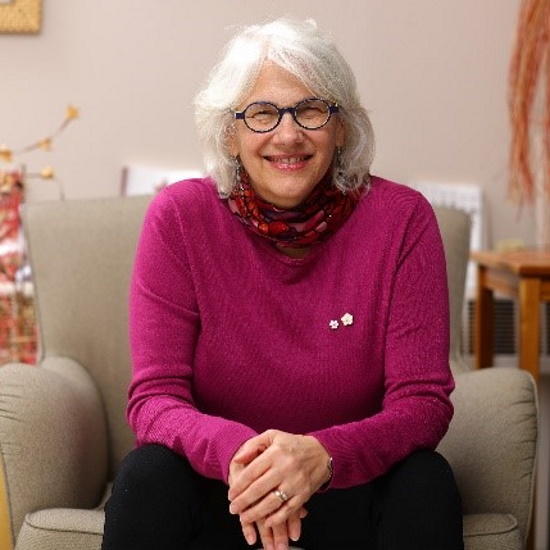
Françoise Baylis
Dalhousie University, Canada

Françoise Baylis
Dalhousie University, Canada
Françoise Baylis CM, ONS, PhD, FRSC, FCAHS, FISC is Distinguished Research Professor Emerita, Dalhousie University, Canada. She is a philosopher whose innovative work in bioethics, at the intersection of policy and practice, has stretched the boundaries of the field. Her work challenges us to think broadly and deeply about the direction of health, science and biotechnology. It aims to move the limits of mainstream bioethics and develop more effective ways to understand and tackle public policy challenges.
Baylis is the author of Altered Inheritance: CRISPR and the Ethics of Human Genome Editing. Her book won the 2020 PROSE Award in Clinical Medicine. Natalie de Souza writes in The New York Review of Books “She offers an authoritative, comprehensive guide to the ethical issues around CRISPR, and her central message is clear: heritable human genome editing shouldn’t be treated as inevitable, and the decision to undertake it should be a collective one.” Adam Hayden writes in Science “Commitments to justice, responsibility, accountability, and consensus building are features of a socially just science and bioethics. Toward this end, Altered Inheritance is a foundational tool in the path ahead.”
Baylis was a member of the Planning Committee for the First and Third International Summit on Gene Editing (2015 and 2023), a member of the WHO Expert Advisory Committee on Developing Global Standards for Governance and Oversight of Human Genome Editing (2019-2021), and a member of WHO Working Groups on a Global Guidance Framework for the Responsible Use of the Life Sciences (2021). She is a member of the Governing Board of the International Science Council and Vice-Chair of its Committee for Freedom and Responsibility in Science.
Baylis is a member of the Order of Canada and the Order of Nova Scotia, as well as an elected Fellow of the Royal Society of Canada, the Canadian Academy of Health Sciences, and the International Science Council. In 2022, she was awarded the Killam Prize for the Humanities, Canada’s most distinguished award for humanities scholars.
| 09:00-09:45 |
Roles and challenges in public engagement
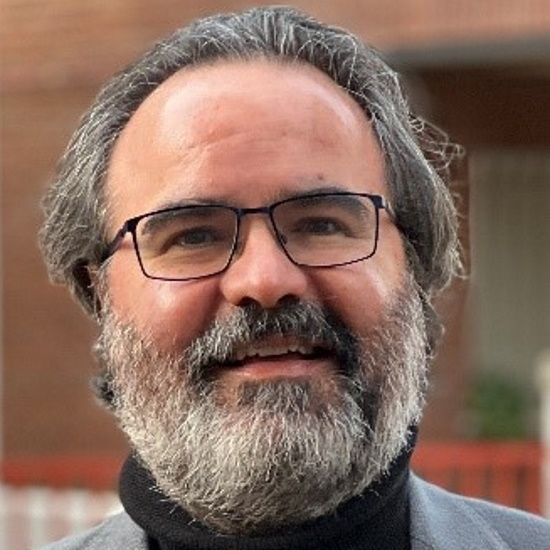
Lluís MontoliuARRIGE & National Centre of Biotechnology (CNB-CSIC) 
Lluís MontoliuARRIGE & National Centre of Biotechnology (CNB-CSIC) 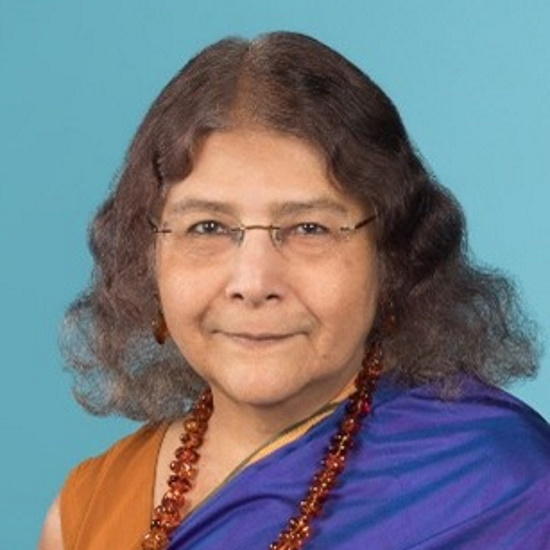
Sheila JasanoffGlobal Observatory & Harvard University 
Sheila JasanoffGlobal Observatory & Harvard University Sheila Jasanoff is Pforzheimer Professor of Science and Technology Studies at the Harvard Kennedy School. A pioneer in the social sciences, she explores the role of science and technology in the law, politics, and policy of modern democracies. Her books include The Fifth Branch, Science at the Bar, Designs on Nature, The Ethics of Invention, and Can Science Make Sense of Life? She founded and directs the STS Program at Harvard, where she also formed the Science and Democracy Network; previously, she was founding chair of the STS Department at Cornell. In 2022, she received the Government of Norway’s Holberg Prize for law, humanities, and social sciences. Her other honors include the SSRC’s Hirschman prize, the Humboldt Foundation’s Reimar-Lüst award, and a Guggenheim Fellowship. Jasanoff has held distinguished visiting professorships at leading universities in Europe, Asia, Australia, and the US. She is a member of the American Academy of Arts and Sciences and the American Philosophical Society, foreign member of the British Academy and the Royal Danish Academy, and member of the Council on Foreign Relations. She served on the AAAS Board of Directors and as President of the Society for Social Studies of Science. She holds AB, JD, and PhD degrees from Harvard, and honorary doctorates from the Universities of Twente and Liège. 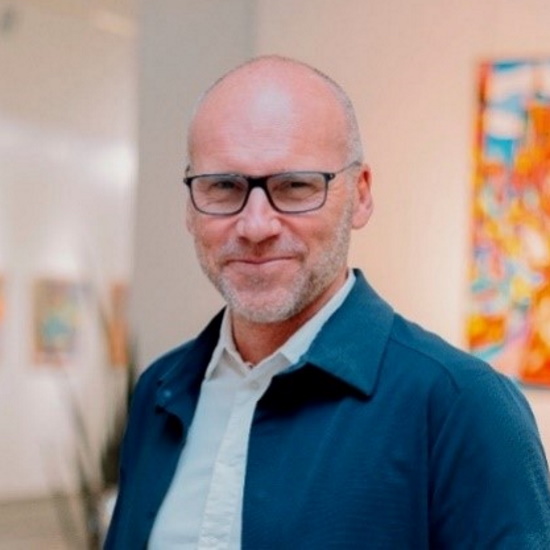
Simon NiemeyerGlobal Citizens’ Assembly on Genome Editing & University of Canberra 
Simon NiemeyerGlobal Citizens’ Assembly on Genome Editing & University of Canberra Simon Niemeyer is Professor and co-founder of the Centre for Deliberative Democracy and Global Governance, and project leader of the Global Citizens’ Assembly on Genome Editing. His research focusses on deliberative democracy, using empirical findings to inform its theoretical foundations and how they inform practical democratic innovations. His recent involves conceptualising, measuring, and analysing deliberative reasoning, with implications for the understanding the ethics of epistemology, the nature of deliberative capacity, the role of expertise, and distributed reasoning in deliberative systems. Much of his work is applied to environmental issues, including climate change, but also covers a broad range of topics including technological development, medical ethics, energy futures, immigration, and parliamentary reform. Niemeyer completed his PhD at the Australian National University in 2002 in social and political theory, which followed undergraduate studies in ecology, economics and environmental policy (Griffith University, where he was awarded the university medal). Over the past twenty years he has acted as chief investigator on 18 research projects in Australia, Sweden and the UK. He has also been recipient of two Australian Research Council fellowships, including a recent Australian Future Fellowship. In addition to the University of Canberra, he has held research positions at The Australian National University, Uppsala University, University of Birmingham, and Cambridge University. He has held visiting fellowships at numerous universities, including University of Oxford (Nuffield College), Åbo Akademi, University of British Columbia, University of Bern and University of Northern Arizona. 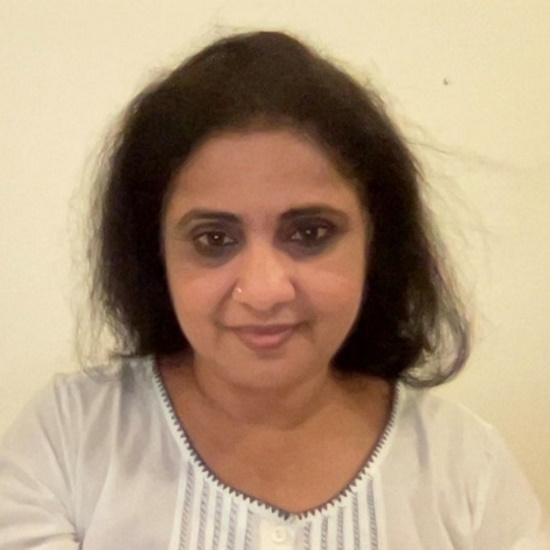
Sarojini NadimpallySAMA Resource Group for Women and Health 
Sarojini NadimpallySAMA Resource Group for Women and Health Sarojini Nadimipally is a social scientist and public health practitioner who has been working on Gender, health, bioethics and human rights for over 25 years and is also one of the founder members of Sama Resource Group for Women and Health. She has an academic background in Social sciences, Food & nutrition and public health. As part of the People’s Health Movement (PHM) – an international coalition of academic and civil society health activists working to promote ‘Health for All – and founder of Sama Resource Group for Women & Health ( www.samawomenshealth.in), she has been working on various issues surrounding public health including, strengthening health systems, health policy, sexual and reproductive health, reproductive and biotechnologies, clinical trials and access to medicines, conflict and health through research, policy advocacy and building solidarity between health and other social movements. Her work at local, regional, national as well as global levels has helped to develop an understanding of health through an intersectionality lens encompassing gender, caste, class, race and rights perspectives, as also the social and political pathways towards better health care and social determinants of health. Her research experience extending over 25 years has been at the intersections of leading implementation research in a broad range of areas of public health, maternal health, sexual and reproductive health, access to medicines, research ethics, conflict and health as well as the creation of research knowledge resources towards health policy and programme implementation outcomes. This engagement also helped to understand the region-specific challenges and gaps in the context of access to universal health care, including pandemics and public health, sexual and reproductive health etc. Sarojini has co-organised national and international conferences, and meetings on women's health, the world bioethics conference (WBC), the Feminist Bioethics Conference (FAB)and the People’s Health Assembly-4 (PHA). Recognising her work on bioethics, access to medicines and clinical trials, the Indian Council for Medical Research (ICMR), a premier research institute in India, has appointed her as a member of the Central Ethics committee on Biomedical Research on Human Participants. As a member of the ICMR committee, she was actively engaged in examining the ethics of biomedical research and was involved in developing the guidelines published in 2017. Having been a part of many debates around “New Vaccines, why, whom when and How”, she developed a nuanced understanding of vaccine development and critical issues around ethics, human rights, access, and affordability and is currently engaged in developing a feminist framework to address pandemics from an intersectionality lens. Her work on medical and reproductive technologies, ethics and clinical trials has been published in many international journals. She has been invited to speak at the Harvard University, Boston University Schools of Public Health, MIT, UMASS, Stanford Univ, Univ of Austin Texas in the US; the London School of Economics and the University of Edinburgh in the UK; and Charite Medical College, Berlin and Goettingen University, Global Labour University in Germany. (2011, 2013, 2015, 2016, 2017 and 2019) also at the UN, WHO and PMAC. Currently, she is the Advisory for the British Medical Journal (BMJ) patients panel and the coordinator of the Health for All campaign for PHM which is on a voluntary basis. |
|---|---|
| 09:45-10:30 |
Are there compelling reasons for heritable human genome editing?
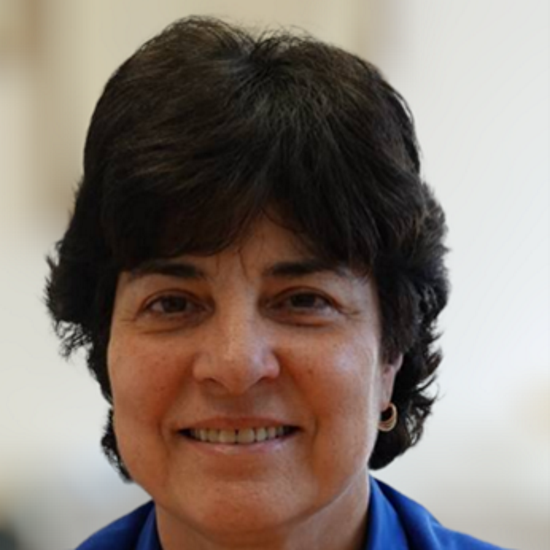
Ephrat Levy-LahadShaare Zedek Medical Center, Israel 
Ephrat Levy-LahadShaare Zedek Medical Center, Israel Ephrat Levy-Lahad is Professor of Medical Genetics and Internal Medicine at the Hebrew University of Jerusalem and Director of the Genetics Institute at Shaare Zedek Medical Center (SZMC) in Jerusalem, Israel. Professor Levy-Lahad's clinical laboratory includes a large pre-implantation diagnosis service and cancer genetics diagnostics. Her research focuses on population genetics of breast/ovarian cancer and on the genetic basis of rare diseases. Her work on population genetics of breast cancer has led to the recent adoption of population screening for BRCA among Ashkenazi Jews in Israel. Professor Levy-Lahad is also active in bioethical aspects of genetic research. She was co-Chair of Israel's National Bioethics Council and was a member of the USA National Academy of Sciences Committee on gene editing. In 2018 she was awarded Israel’s EMET Prize in Life Sciences. She currently serves as Vice President of the Israel National Academy for Science in Medicine. 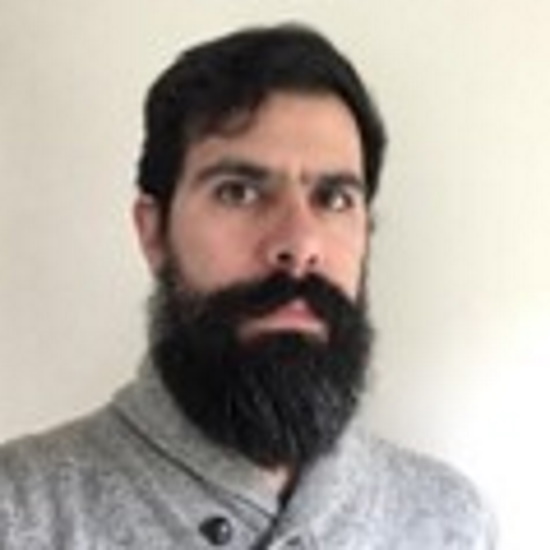
César Palacios-GonzálezUniversity of Oxford, UK 
César Palacios-GonzálezUniversity of Oxford, UK Dr César Palacios-González is a Senior Research Fellow in Practical Ethics at the Oxford Uehiro Centre for Practical Ethics, a Research Fellow at Wolfson College, a Knowledge Exchange Fellow at The Oxford Research Centre in the Humanities, a Senior Associate at Pembroke College, and the Deputy Director of the MSt in Practical Ethics. His research interests include philosophy of medicine, applied ethics, and reproductive ethics. 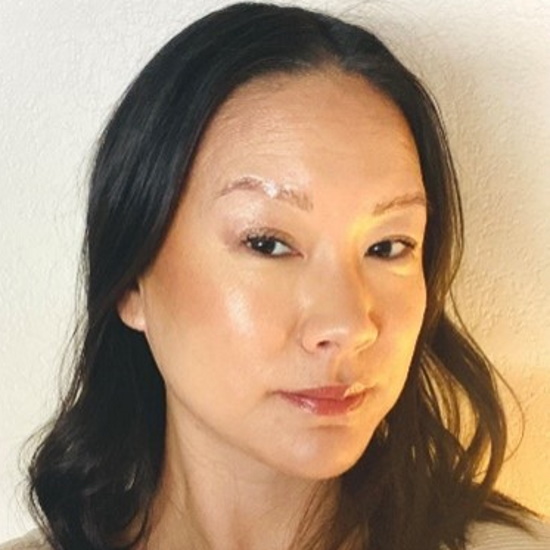
Tina RulliUniversity of California, Davis 
Tina RulliUniversity of California, Davis Tina Rulli is an Associate Professor in the department of Philosophy at the University of California, Davis. She works in both ethical theory and bioethics, with a focus on reproductive and population ethics. Her published work includes pieces in the Journal of the American Medical Association, Bioethics, the Kennedy Institute of Ethics Journal, and the Hastings Center Report. She received her postdoctoral training in bioethics at the National Institutes of Health Clinical Center Bioethics Department and her PhD in Philosophy from Yale. |
Chair
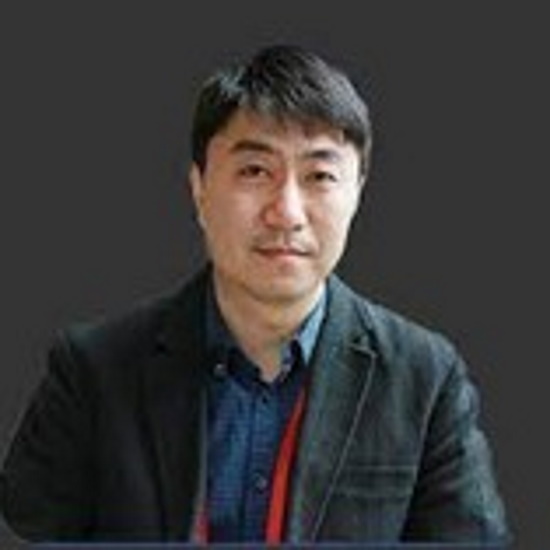
Haoyi Wang
Institute of Zoology, Chinese Academy of Sciences

Haoyi Wang
Institute of Zoology, Chinese Academy of Sciences
Haoyi Wang PhD leads a research group in the State Key Laboratory of Stem Cell and Reproductive Biology at the Chinese Academy of Sciences’ Institute of Zoology. The Wang laboratory focuses on developing novel technologies to achieve efficient and specific genome engineering and applying them to study the function of genes and establish novel therapeutic methods. His laboratory has developed a zygote electroporation of nuclease method to generate genetically modified mouse models with high throughput and efficiency, the Casilio method to regulate gene transcription, and a method to generate CAR-T cells with multiplex gene editing. Dr Wang previously worked on the development of a variety of genome engineering technologies, including a transposon-based “calling card” method for determining the genome-wide binding locations of transcription factors, TALEN-mediated genome editing in human pluripotent stem cells and mice, CRISPR-mediated multiplexed genome editing in mice, and CRISPR-mediated gene activation in human cells. Dr Wang received his PhD from Washington University in St Louis.
| 11:00-11:20 |
The advantages and disadvantages of editing gametes
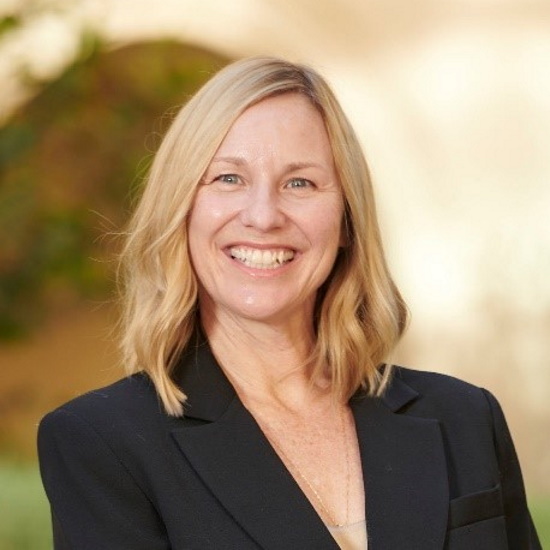
Amander ClarkUniversity of California, Los Angeles 
Amander ClarkUniversity of California, Los Angeles Professor Amander Clark PhD is a stem cell scientist, geneticist and developmental biologist who is internationally recognized for her work on the germline and in vitro gametogenesis. Professor Clark has authored over one hundred research articles, and is regularly invited to speak on the use of stem cells to understand fertility and the disease of infertility. Professor Clark’s research is currently supported by grants from the National Institute of Health and the Bill and Melinda Gates Foundation. Her research has also been supported by the California Institute of Regenerative Medicine, the Templeton Foundation and the LucaBella Foundation. Professor Clark’s work has been recognized by Awards from the International Society for Stem Cell Research, STOP Cancer, the Lance Armstrong and Concern Foundations. In 2022 she was awarded the Founder’s Medal from the Australian and New Zealand Society for Reproductive Biology. Professor Clark was recruited to UCLA in 2006, awarded tenure in 2012, promoted to full Professor in 2015, and in 2017 became Department Chair of the UCLA Department of Molecular Cell and Developmental Biology. Professor Clark is currently the inaugural Director of the UCLA Center for Reproductive Science, Health and Education, and President-Elect of the International Society for Stem Cell Research, a global non-profit that promotes excellence in stem cell science and applications to human health. |
|---|---|
| 11:20-12:05 |
Update of core technologies for editing gametes
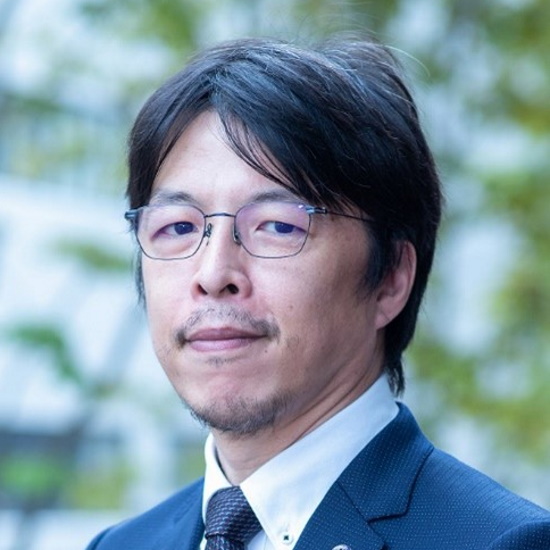
Katsuhiko HayashiKyushu University, Japan 
Katsuhiko HayashiKyushu University, Japan Katsuhiko Hayashi (born Dec. 2, 1971), a full professor in Department of Genome Biology, Graduate School of Medicine, Osaka University, is working on germ cell development and its reconstitution in vitro through his career: 1994-1996, MS course of Meiji University; 1996-2002, an assistant professor in Tokyo University of Science; 2002-2005, a staff researcher in Osaka Medical Center (Ph.D. 2004); 2005-2009, post-doctoral fellow in the Gurdon Institute, University of Cambridge; 2009-2014, associate professor in Kyoto University; and 2014-2021 a full professor in Kyushu University. From 2021, He has been in the current position in Osaka University. 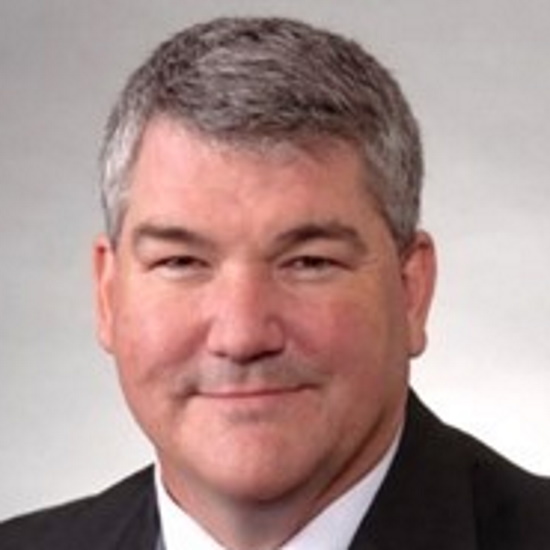
Kyle OrwigUniversity of Pittsburgh 
Kyle OrwigUniversity of Pittsburgh Dr. Orwig is a Professor of Obstetrics, Gynecology and Reproductive Sciences at the University of Pittsburgh School of Medicine. He is also the director of the Fertility Preservation Program and the Center for Reproduction and Transplantation at Magee-Womens Hospital of UPMC. Research in the Orwig laboratory focuses on stem cells, germ lineage development, fertility and infertility. Our progress investigating reproductive function in fertile individuals provides a basis for understanding the mechanisms of infertility caused by disease, medical treatments, genetic defects or aging. Infertility impacts one in seven couples in the United States and can have a devastating impact on relationships, emotional well-being and overall health. The Orwig lab is ideally located in Magee-Womens Research Institute and Magee-Womens Hospital of the University of Pittsburgh and is committed to translating lab bench discoveries to the clinic for diagnosis, prevention and treatment of infertility. 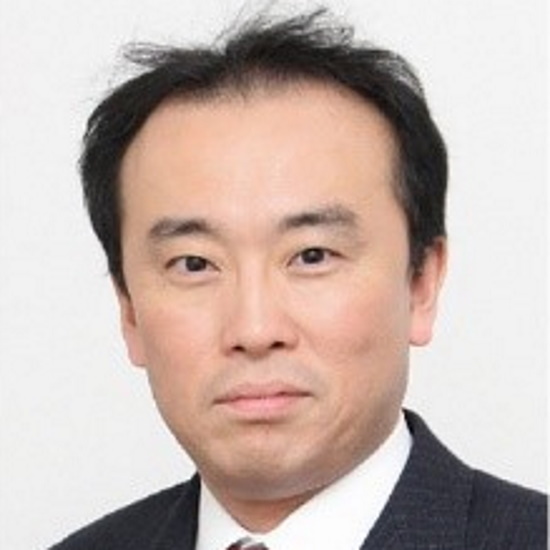
Mitinori SaitouKyoto University 
Mitinori SaitouKyoto University Saitou has been promoting studies on the developmental mechanisms of germ cells, the origin of all life. He clarified the formation mechanisms of mouse germ cells and successfully generated primordial germ cell-like cells (PGCLCs) in vitro from mouse ESCs and iPSCs to produce sperm, oocytes and healthy offspring. He used this experimental system as a model to investigate the molecular mechanisms of key phenomena in germ cell development, including epigenomic reprogramming, oocyte differentiation, and meiosis induction mechanisms. Saitou’s analysis of the developmental mechanisms of cynomolgus monkeys has allowed us to identify the characteristics of pluripotent cell lineages in mice, monkeys and humans and the formation mechanisms of germ cells in primates. He has also generated PGCLCs and oogonium from human iPSCs and pioneered research on in vitro reconstitution in the process of human germ cell development. Saitou aims to promote advanced human biology that develops these studies, to identify the characteristics and evolutionary mechanisms of humans and primates, and to lay out new possibilities in medical science. |
| 12:05-12:40 |
Panel discussion

Amander ClarkUniversity of California, Los Angeles 
Amander ClarkUniversity of California, Los Angeles Professor Amander Clark PhD is a stem cell scientist, geneticist and developmental biologist who is internationally recognized for her work on the germline and in vitro gametogenesis. Professor Clark has authored over one hundred research articles, and is regularly invited to speak on the use of stem cells to understand fertility and the disease of infertility. Professor Clark’s research is currently supported by grants from the National Institute of Health and the Bill and Melinda Gates Foundation. Her research has also been supported by the California Institute of Regenerative Medicine, the Templeton Foundation and the LucaBella Foundation. Professor Clark’s work has been recognized by Awards from the International Society for Stem Cell Research, STOP Cancer, the Lance Armstrong and Concern Foundations. In 2022 she was awarded the Founder’s Medal from the Australian and New Zealand Society for Reproductive Biology. Professor Clark was recruited to UCLA in 2006, awarded tenure in 2012, promoted to full Professor in 2015, and in 2017 became Department Chair of the UCLA Department of Molecular Cell and Developmental Biology. Professor Clark is currently the inaugural Director of the UCLA Center for Reproductive Science, Health and Education, and President-Elect of the International Society for Stem Cell Research, a global non-profit that promotes excellence in stem cell science and applications to human health. 
Kyle OrwigUniversity of Pittsburgh 
Kyle OrwigUniversity of Pittsburgh Dr. Orwig is a Professor of Obstetrics, Gynecology and Reproductive Sciences at the University of Pittsburgh School of Medicine. He is also the director of the Fertility Preservation Program and the Center for Reproduction and Transplantation at Magee-Womens Hospital of UPMC. Research in the Orwig laboratory focuses on stem cells, germ lineage development, fertility and infertility. Our progress investigating reproductive function in fertile individuals provides a basis for understanding the mechanisms of infertility caused by disease, medical treatments, genetic defects or aging. Infertility impacts one in seven couples in the United States and can have a devastating impact on relationships, emotional well-being and overall health. The Orwig lab is ideally located in Magee-Womens Research Institute and Magee-Womens Hospital of the University of Pittsburgh and is committed to translating lab bench discoveries to the clinic for diagnosis, prevention and treatment of infertility. 
Katsuhiko HayashiKyushu University, Japan 
Katsuhiko HayashiKyushu University, Japan Katsuhiko Hayashi (born Dec. 2, 1971), a full professor in Department of Genome Biology, Graduate School of Medicine, Osaka University, is working on germ cell development and its reconstitution in vitro through his career: 1994-1996, MS course of Meiji University; 1996-2002, an assistant professor in Tokyo University of Science; 2002-2005, a staff researcher in Osaka Medical Center (Ph.D. 2004); 2005-2009, post-doctoral fellow in the Gurdon Institute, University of Cambridge; 2009-2014, associate professor in Kyoto University; and 2014-2021 a full professor in Kyushu University. From 2021, He has been in the current position in Osaka University. 
Mitinori SaitouKyoto University 
Mitinori SaitouKyoto University Saitou has been promoting studies on the developmental mechanisms of germ cells, the origin of all life. He clarified the formation mechanisms of mouse germ cells and successfully generated primordial germ cell-like cells (PGCLCs) in vitro from mouse ESCs and iPSCs to produce sperm, oocytes and healthy offspring. He used this experimental system as a model to investigate the molecular mechanisms of key phenomena in germ cell development, including epigenomic reprogramming, oocyte differentiation, and meiosis induction mechanisms. Saitou’s analysis of the developmental mechanisms of cynomolgus monkeys has allowed us to identify the characteristics of pluripotent cell lineages in mice, monkeys and humans and the formation mechanisms of germ cells in primates. He has also generated PGCLCs and oogonium from human iPSCs and pioneered research on in vitro reconstitution in the process of human germ cell development. Saitou aims to promote advanced human biology that develops these studies, to identify the characteristics and evolutionary mechanisms of humans and primates, and to lay out new possibilities in medical science. |
Chair

Professor Robin Lovell-Badge FRS
The Francis Crick Institute

Professor Robin Lovell-Badge FRS
The Francis Crick Institute
Robin Lovell-Badge obtained his PhD at University College London in 1978 and was a postdoc in Cambridge, both with Martin Evans. After an EMBO fellowship in Paris he established his independent laboratory in 1982 at the MRC Mammalian Development Unit, UCL, directed by Anne McLaren. In 1988 he moved to the MRC National Institute for Medical Research, which was incorporated into the Francis Crick Institute in 2015. In 1990, his lab discovered Sry, the Y-linked sex determining gene and the Sox gene family. Major themes of his past and current work include sex determination, development of the gonads, nervous system and pituitary, and the biology of stem cells within these systems. He is also very active in both public engagement and policy work. He has a strong interest in the prospects for applications of human genome editing and was on the organising committee for the three international Summits held on this, including as chair for the 2023 meeting.
| 13:40-14:00 |
Chromosomal consequences of gene editing

Dieter EgliColumbia University Irving Medical Center 
Dieter EgliColumbia University Irving Medical Center Dr. Egli received his Ph.D. in molecular biology in 2003 from the University of Zurich, Switzerland, with the mentorship of Prof. Walter Schaffner. He then joined the laboratory of Prof. Kevin Eggan at Harvard University as a postdoctoral fellow where he studied somatic cell reprogramming. Joining the New York Stem Cell Foundation Research Institute as one of the founding members in 2008, first as a postdoctoral fellow and then as an independent group leader, he worked on understanding diabetes using pluripotent stem cells, mitochondrial replacement and somatic cell nuclear transfer. In 2014, he started his laboratory at Columbia University Medical Center, performing studies on genome stability in the contexts of gene editing, early embryonic development, somatic cell reprogramming, and cell differentiation. |
|---|---|
| 14:00-14:20 |
Analysis of gene editing in human embryos
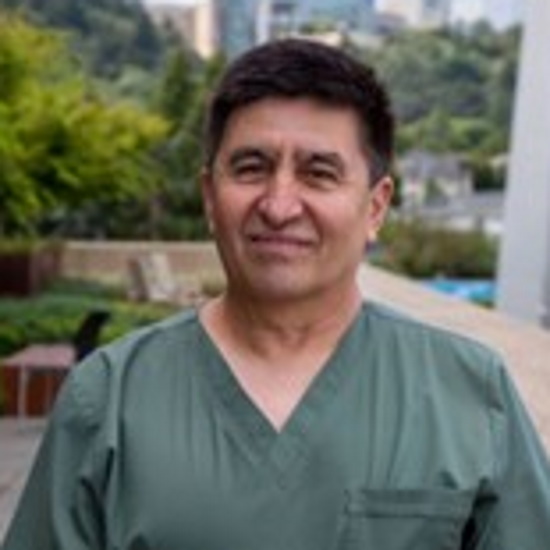
Shoukhrat MitalipovOregon Health and Science University 
Shoukhrat MitalipovOregon Health and Science University Dr. Shoukhrat Mitalipov earned his Ph.D. in Human Genetics in 1994 from the Research Center for Medical Genetics in Moscow. He then moved in 1995 to USA and completed a postdoctoral training at Utah State University and joined in 1998 as a faculty the Oregon National Primate Research Center at Oregon Health & Science University. Currently, Dr. Mitalipov is a director of Center for Embryonic and Gene Therapy at Oregon Health & Science University. His research is focused on investigating and developing novel cell and gene therapy approaches for treatment of female infertility. Another research topic in his laboratory is investigating novel germ line gene therapy approaches that would allow repairing gene defects in gametes or early preimplantation embryos and thus prevent passage of thousands of heritable genetic disorders from parents to their children. Dr. Mitalipov’s laboratory is exploring applications of gene editing and gene replacement strategies in preclinical and clinical studies demonstrating feasibility, efficacy and long-term safety of these approaches. As part of other ongoing germ line gene therapy projects, his laboratory pioneered the concept of mitochondrial replacement therapy (MRT) to prevent the transmission of pathogenic mtDNA mutations from mothers to their children. This work has been initially developed and tested in a nonhuman primate model and more recently extended to clinical trials that resulted in birth of healthy children. |
| 14:20-15:00 |
Genetic approaches to study early lineage specification in human embryos
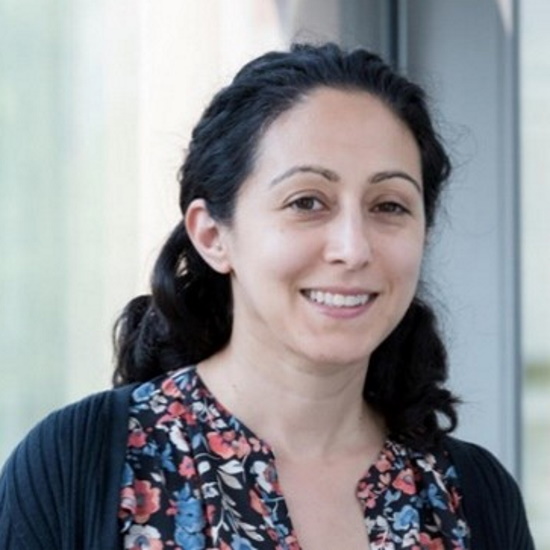
Kathy NiakanFrancis Crick Institute & University of Cambridge 
Kathy NiakanFrancis Crick Institute & University of Cambridge Kathy Niakan is Mary Marshall and Arthur Walton Professor of Reproductive Physiology, Director of the Centre for Trophoblast Research and Chair of the Strategic Research Initiative on Reproduction at the University of Cambridge and Group Leader at the Francis Crick Institute in London. Her laboratory investigates the mechanisms that direct cell fate in human embryos and stem cells. She obtained a B.Sc. in Cell and Molecular Biology and a B.A. in English Literature from University of Washington. She obtained her PhD at University of California, Los Angeles. She undertook postdoctoral training at Harvard University. She was a Centre for Trophoblast Research Next Generation Research Fellow at University of Cambridge. |
| 15:00-15:20 |
Monkey embryo editing: perspective on science and technology
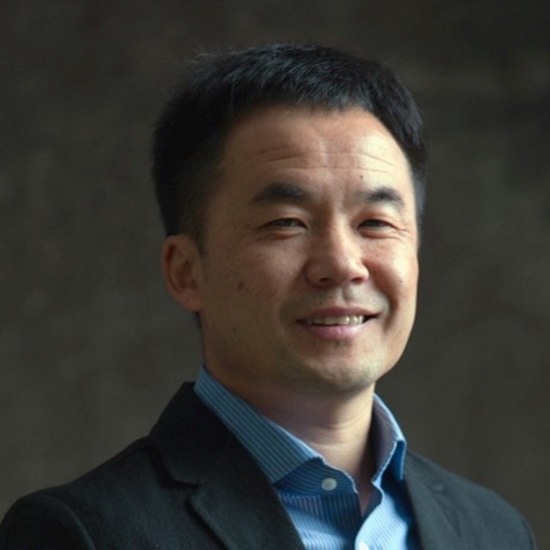
Yuyu NiuState Key Laboratory of Primate Biomedical Research & Kunming University of Science and Technology 
Yuyu NiuState Key Laboratory of Primate Biomedical Research & Kunming University of Science and Technology Yuyu Niu, Ph.D., is a professor in life sciences, and is now the Vice-chancellor of Kunming University of Science and Technology, China. He is also the Dean of Faculty of Life Science and Technology, Kunming University of Science and Technology, China and the Associate Director of State Key Laboratory of Primate Biomedical Research, China. Research in Yuyu Niu’s laboratory is focused on primate pre- and post- implantation embryo development, which play a significant role in cell differentiation and organ formation and therefore has an enormous impact on human diseases. Built on the strength in non-human primate research, the Yuyu Niu's laboratory has expanded its capability to use a variety of state-of-the-art techniques, including CRISPR/Cas9-based genomic editing, somatic cell nuclear transfer, single cell transcriptomics, cell lineage tracing and stem cells to understand the molecular events at the beginning of primate life and cell reprogramming. His long-term goal is to apply what has learned in basic research to studies of: 1) the development and application of biotherapy technology involving gene editing and stem cells; 2) the engineered construction and application of organoids; 3) the genetic basis of human aging and explore strategies for healthy aging. Yuyu has made substantial contributions to non-human primate genetic engineering and early embryo development that include: 1) the first transgenic rhesus monkey model in China (PNAS, 2010); 2) the first monkey model with a genome engineered by precision gene-targeting (Cell, 2014; Cell, 2017); 3) the continuous development of monkey embryos in vitro beyond early gastrulation and 20 days post fertilization (Science 2019; Cell 2021). |
| 15:20-15:40 |
Panel discussion

Dieter EgliColumbia University Irving Medical Center 
Dieter EgliColumbia University Irving Medical Center Dr. Egli received his Ph.D. in molecular biology in 2003 from the University of Zurich, Switzerland, with the mentorship of Prof. Walter Schaffner. He then joined the laboratory of Prof. Kevin Eggan at Harvard University as a postdoctoral fellow where he studied somatic cell reprogramming. Joining the New York Stem Cell Foundation Research Institute as one of the founding members in 2008, first as a postdoctoral fellow and then as an independent group leader, he worked on understanding diabetes using pluripotent stem cells, mitochondrial replacement and somatic cell nuclear transfer. In 2014, he started his laboratory at Columbia University Medical Center, performing studies on genome stability in the contexts of gene editing, early embryonic development, somatic cell reprogramming, and cell differentiation. 
Shoukhrat MitalipovOregon Health and Science University 
Shoukhrat MitalipovOregon Health and Science University Dr. Shoukhrat Mitalipov earned his Ph.D. in Human Genetics in 1994 from the Research Center for Medical Genetics in Moscow. He then moved in 1995 to USA and completed a postdoctoral training at Utah State University and joined in 1998 as a faculty the Oregon National Primate Research Center at Oregon Health & Science University. Currently, Dr. Mitalipov is a director of Center for Embryonic and Gene Therapy at Oregon Health & Science University. His research is focused on investigating and developing novel cell and gene therapy approaches for treatment of female infertility. Another research topic in his laboratory is investigating novel germ line gene therapy approaches that would allow repairing gene defects in gametes or early preimplantation embryos and thus prevent passage of thousands of heritable genetic disorders from parents to their children. Dr. Mitalipov’s laboratory is exploring applications of gene editing and gene replacement strategies in preclinical and clinical studies demonstrating feasibility, efficacy and long-term safety of these approaches. As part of other ongoing germ line gene therapy projects, his laboratory pioneered the concept of mitochondrial replacement therapy (MRT) to prevent the transmission of pathogenic mtDNA mutations from mothers to their children. This work has been initially developed and tested in a nonhuman primate model and more recently extended to clinical trials that resulted in birth of healthy children. 
Kathy NiakanFrancis Crick Institute & University of Cambridge 
Kathy NiakanFrancis Crick Institute & University of Cambridge Kathy Niakan is Mary Marshall and Arthur Walton Professor of Reproductive Physiology, Director of the Centre for Trophoblast Research and Chair of the Strategic Research Initiative on Reproduction at the University of Cambridge and Group Leader at the Francis Crick Institute in London. Her laboratory investigates the mechanisms that direct cell fate in human embryos and stem cells. She obtained a B.Sc. in Cell and Molecular Biology and a B.A. in English Literature from University of Washington. She obtained her PhD at University of California, Los Angeles. She undertook postdoctoral training at Harvard University. She was a Centre for Trophoblast Research Next Generation Research Fellow at University of Cambridge. 
Yuyu NiuState Key Laboratory of Primate Biomedical Research & Kunming University of Science and Technology 
Yuyu NiuState Key Laboratory of Primate Biomedical Research & Kunming University of Science and Technology Yuyu Niu, Ph.D., is a professor in life sciences, and is now the Vice-chancellor of Kunming University of Science and Technology, China. He is also the Dean of Faculty of Life Science and Technology, Kunming University of Science and Technology, China and the Associate Director of State Key Laboratory of Primate Biomedical Research, China. Research in Yuyu Niu’s laboratory is focused on primate pre- and post- implantation embryo development, which play a significant role in cell differentiation and organ formation and therefore has an enormous impact on human diseases. Built on the strength in non-human primate research, the Yuyu Niu's laboratory has expanded its capability to use a variety of state-of-the-art techniques, including CRISPR/Cas9-based genomic editing, somatic cell nuclear transfer, single cell transcriptomics, cell lineage tracing and stem cells to understand the molecular events at the beginning of primate life and cell reprogramming. His long-term goal is to apply what has learned in basic research to studies of: 1) the development and application of biotherapy technology involving gene editing and stem cells; 2) the engineered construction and application of organoids; 3) the genetic basis of human aging and explore strategies for healthy aging. Yuyu has made substantial contributions to non-human primate genetic engineering and early embryo development that include: 1) the first transgenic rhesus monkey model in China (PNAS, 2010); 2) the first monkey model with a genome engineered by precision gene-targeting (Cell, 2014; Cell, 2017); 3) the continuous development of monkey embryos in vitro beyond early gastrulation and 20 days post fertilization (Science 2019; Cell 2021). |
Chair

Māui Hudson
University of Waikato, Aotearoa New Zealand

Māui Hudson
University of Waikato, Aotearoa New Zealand
Māui Hudson affiliates to the Whakatōhea Nation in Aotearoa New Zealand and is a member of the Whakatohea Maori Trust Board. He is an Associate Professor and Director of Te Kotahi Research Institute at the University of Waikato. He is a founding member of Te Mana Raraunga Maori Data Sovereignty Network and Global Indigenous Data Alliance, and is a co-author of the CARE Principles for Indigenous Data Governance and the Te Mata Ira Guidelines for Genomic Research with Maori.
| 16:10-17:00 |
How to enforce research policies and ethical principles for human genome editing
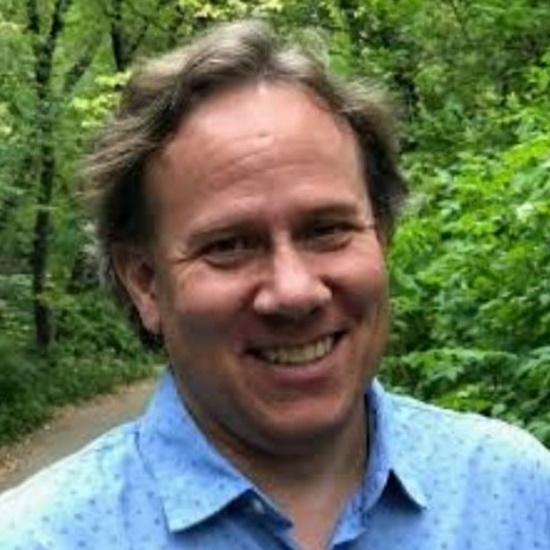
Leigh TurnerUniversity of California, Irvine 
Leigh TurnerUniversity of California, Irvine Leigh Turner is the Executive Director of the University of California, Irvine’s Bioethics Program and a Professor in the Program in Public Health’s Department of Health, Society, and Behavior. He is also a member of UCI’s Stem Cell Research Center and serves as Ethics Lead for UCI’s Institute for Clinical and Translational Science. Turner’s current research addresses ethical, legal, and social issues related to stem cells and regenerative medicine products. In particular, he uses approaches from health ethics and the social sciences to study the activities of clinics engaged in direct-to-consumer marketing of unproven and unlicensed cell-based interventions. He has also written about ethical dimensions of health-related travel, crowdfunding for medical interventions, and end-of-life care in multicultural societies. Turner is a co-editor of Risks and Challenges in Medical Tourism: Understanding the Global Market for Health Services and The View from Here: Bioethics and the Social Sciences. 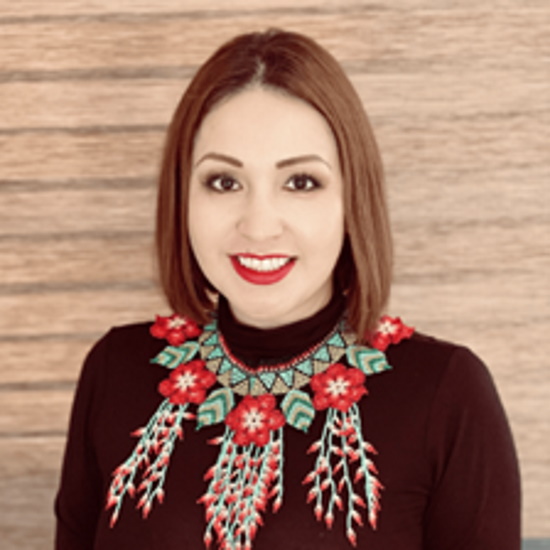
María de Jesús Medina ArellanoNational Autonomous University of Mexico 
María de Jesús Medina ArellanoNational Autonomous University of Mexico María de Jesús Medina-Arellano is a PhD in Bioethics and Medical Jurisprudence. She is also a qualified lawyer who graduated from the Autonomous University of Nayarit (UAN), Mexico in 2004. Currently, she is a permanent research professor at the Legal Research Institute in the National Autonomous University of Mexico (UNAM). She is a member of the National Research System in Mexico, SNI- level 2, in Mexico’s CONACyT. Currently, she is on annual sabbatical research as an academic visiting scholar at the Uehiro Centre for Practical Ethics at the University of Oxford and the Centre for Social Ethics and Policy at the Department of Law of the University of Manchester in the UK. She is a member of Mexican Society for Stem Cell Research since 2016. From November 2019, she is a member of the Ethics Board of the National Council of Health in Mexico. From January 2019, she is a member of the University Ethics Committee of the National Autonomous University of Mexico. She is a member of Hinxton International Group. From 2028-2022 she was member of the Board of Directors of the International Association of Bioethics. In December 2008 she was recognised as the Young Academic Talent of the Year, an award granted by the Nayarit Government in Mexico. In 2010, she was awarded the UNAM-Alfonso Caso silver medal for outstanding achievement, as the best postgraduate student of the 2008 class in social sciences. In 2019 she obtained the medal of women excellence in science at UNAM, Sor Juana Inés de la Cruz, and in 2020 she was granted with the price National University for Youth Scientists in Social Sciences at UNAM. 
Yaojin PengChinese Academy of Sciences 
Yaojin PengChinese Academy of Sciences Dr Yaojin Peng, Zhiyi Professor, Institute of Zoology (Chinese Academy of Sciences, CAS), Beijing Institute of Stem Cell and Regenerative Medicine (BISCRM); Director of the Centre for Ethics of Science and Technology (CEST); Director of the Life Sciences and Medical Ethics Committee of the CAS. He holds a Bachelor’s degree in life science and a Master’s degree in Law. He finished his PhD at the Faculty of Law, Maastricht University, the Netherlands. Dr Peng’s research focuses on biotechnology law and bioethics, intellectual property rights (patents) and standards, science and technology policy and management. He currently is a member of the expert committee of China Stem Cell and Regenerative Medicine Collaborative Innovation Platform; Deputy Secretary General of the Academic committee of the Center for Science & Technology Development and Governance, Tsinghua University; a member of the Standard Working Group of Chinese Society for Stem Cell Research (CSSCR); He used to be a fellow member of the Ius Commune Research School, researcher of the Institute for Globalization and International Regulation (IGIR), Maastricht University, team advisor of the 17th Congress of the European Intellectual Property Institutes Network (EIPIN). He visited the School of Law, Singapore Management University (SMU) for six months. He has chaired or participated in many projects. In 2021, he was selected into the “Youth Innovation Promotion Association of the CAS”, and had the honour to win the Awards of “Advanced Individual for Stem Cell Social Welfare” of the CSSCR. |
|---|
Chair

Professor Robin Lovell-Badge FRS
The Francis Crick Institute

Professor Robin Lovell-Badge FRS
The Francis Crick Institute
Robin Lovell-Badge obtained his PhD at University College London in 1978 and was a postdoc in Cambridge, both with Martin Evans. After an EMBO fellowship in Paris he established his independent laboratory in 1982 at the MRC Mammalian Development Unit, UCL, directed by Anne McLaren. In 1988 he moved to the MRC National Institute for Medical Research, which was incorporated into the Francis Crick Institute in 2015. In 1990, his lab discovered Sry, the Y-linked sex determining gene and the Sox gene family. Major themes of his past and current work include sex determination, development of the gonads, nervous system and pituitary, and the biology of stem cells within these systems. He is also very active in both public engagement and policy work. He has a strong interest in the prospects for applications of human genome editing and was on the organising committee for the three international Summits held on this, including as chair for the 2023 meeting.
